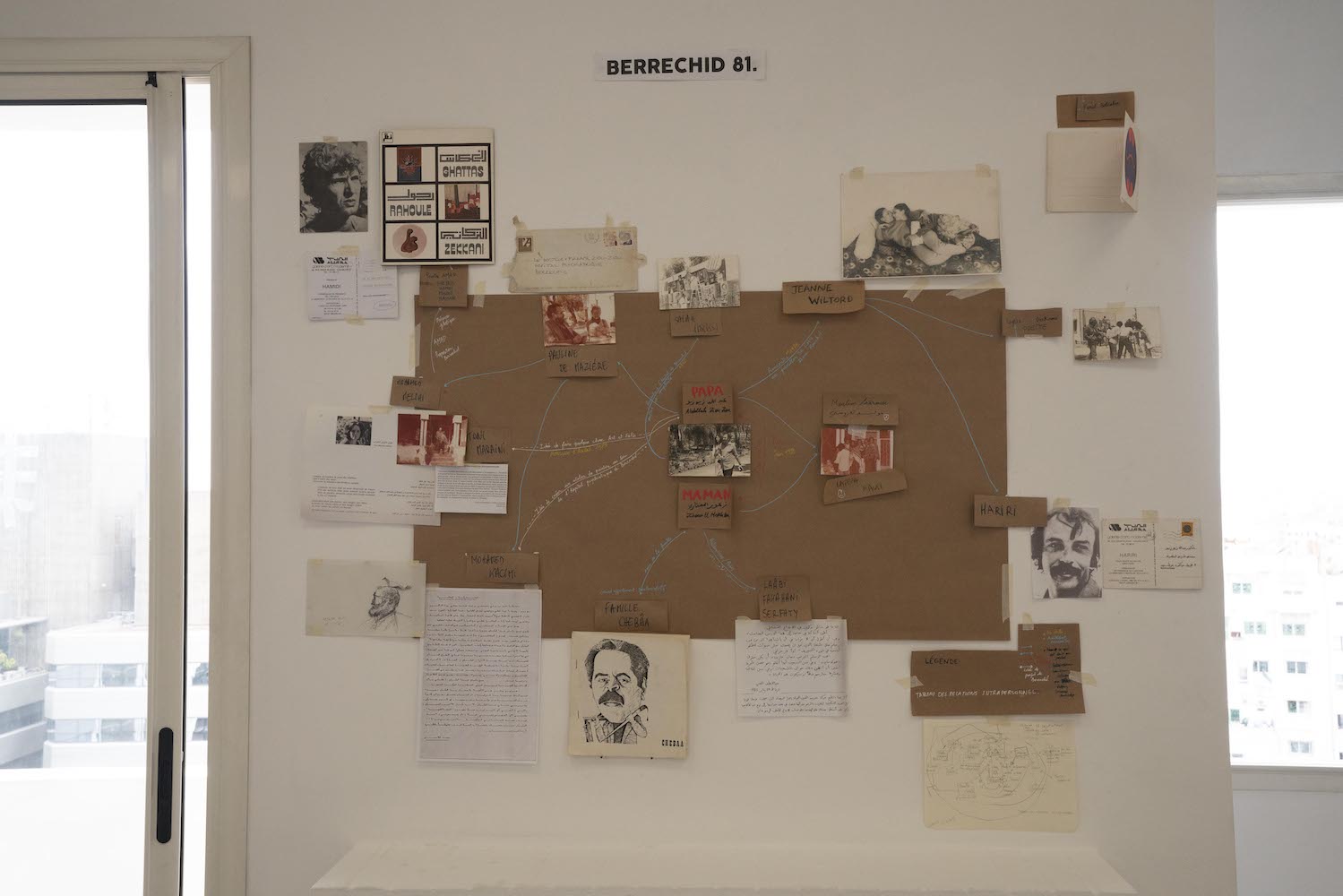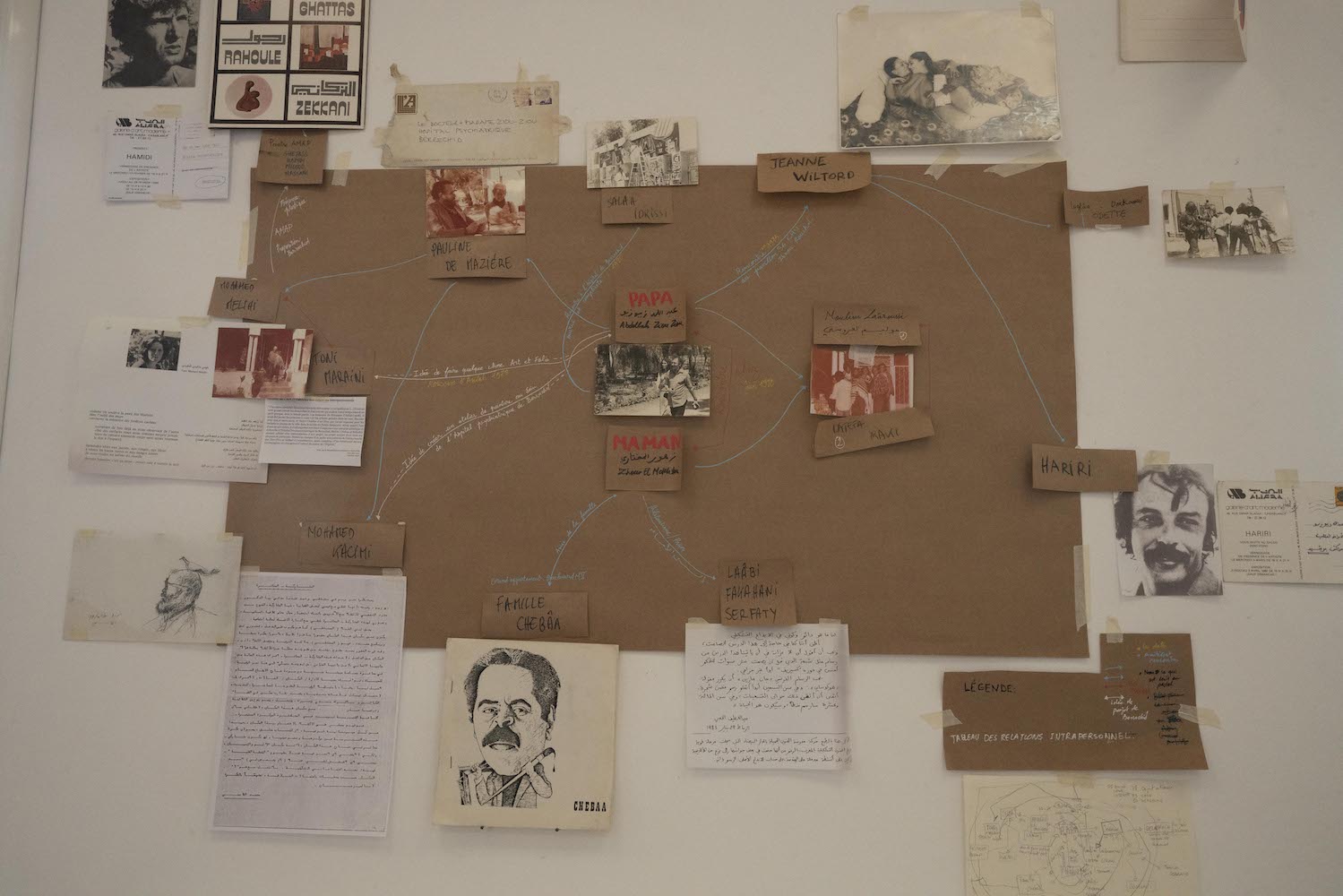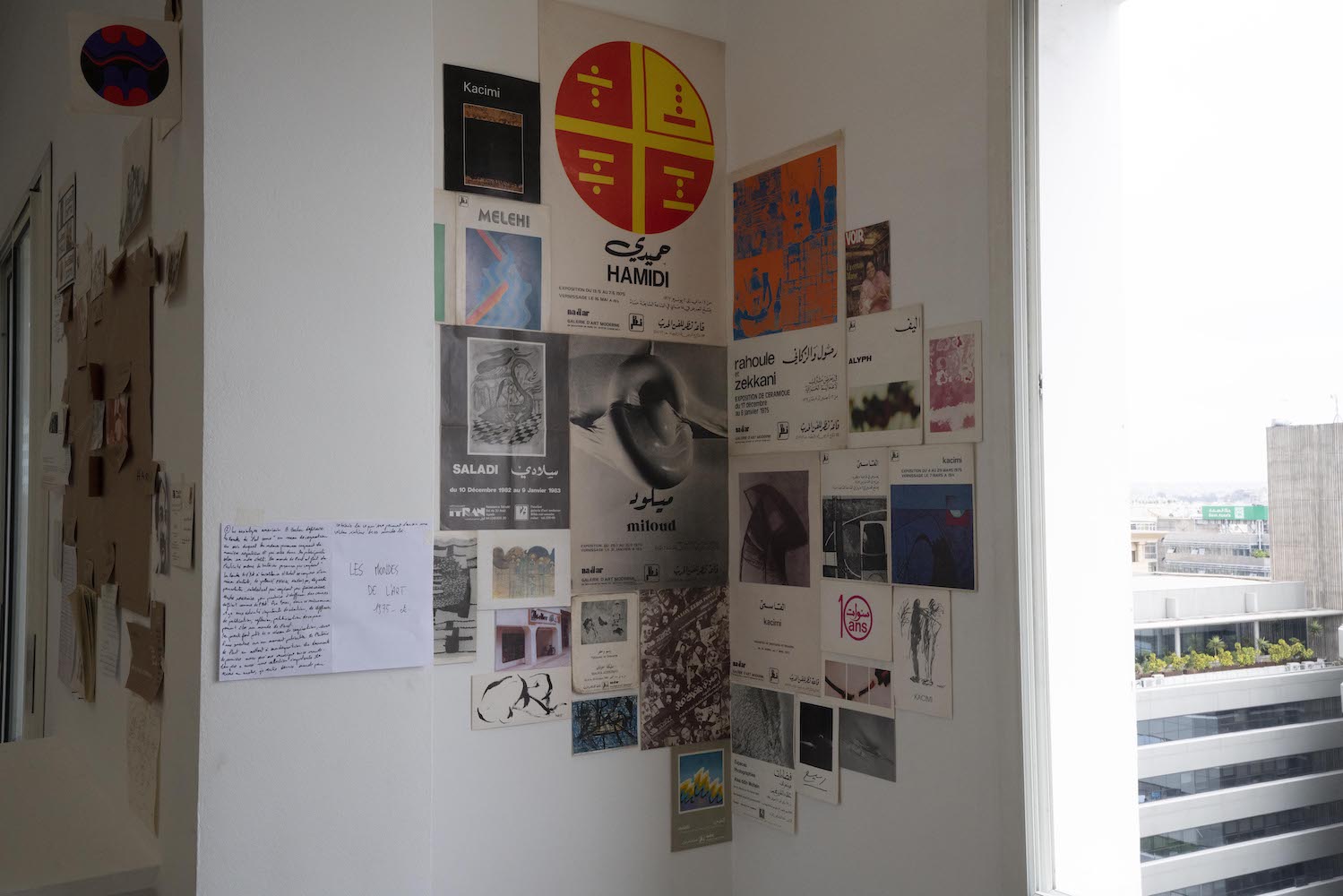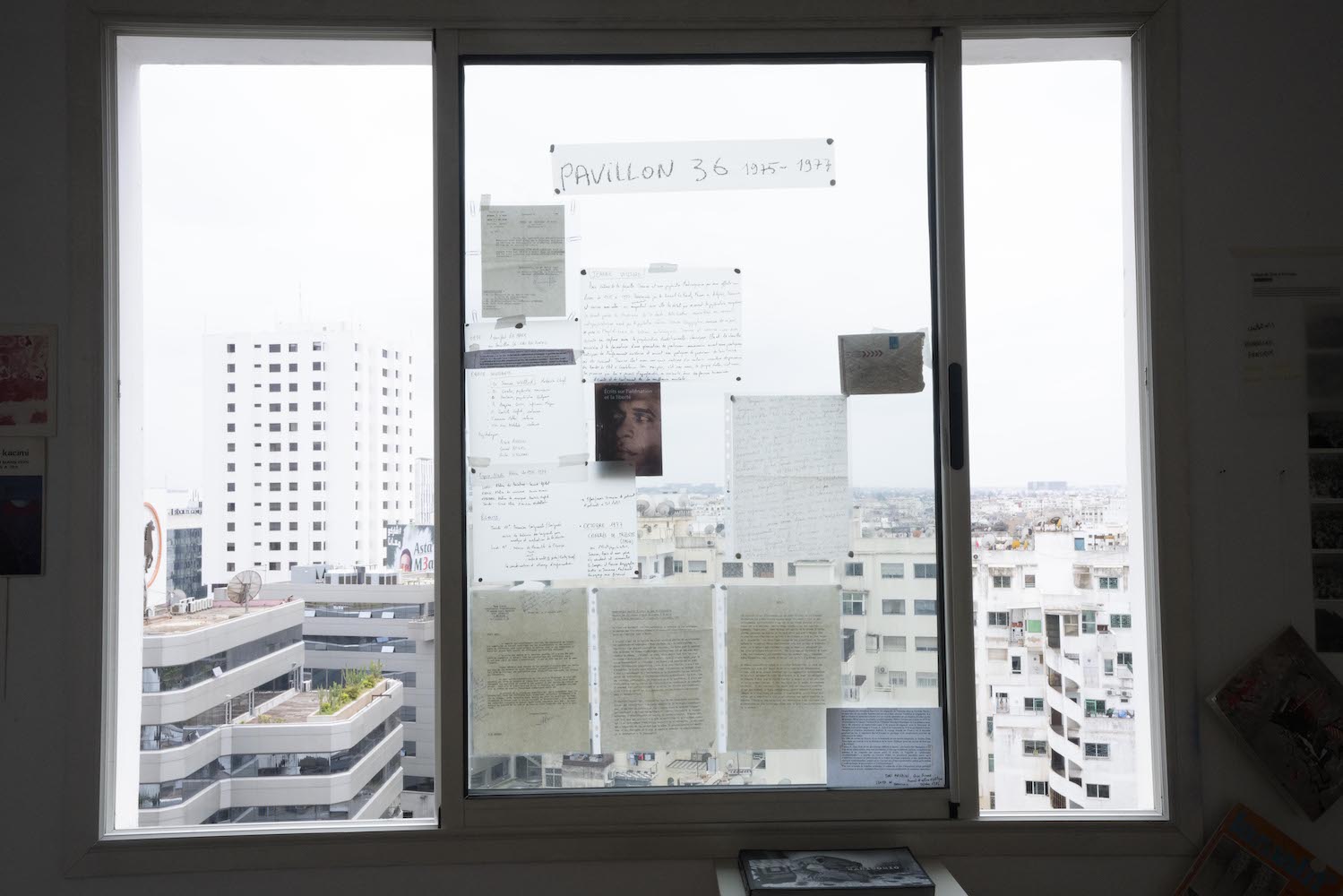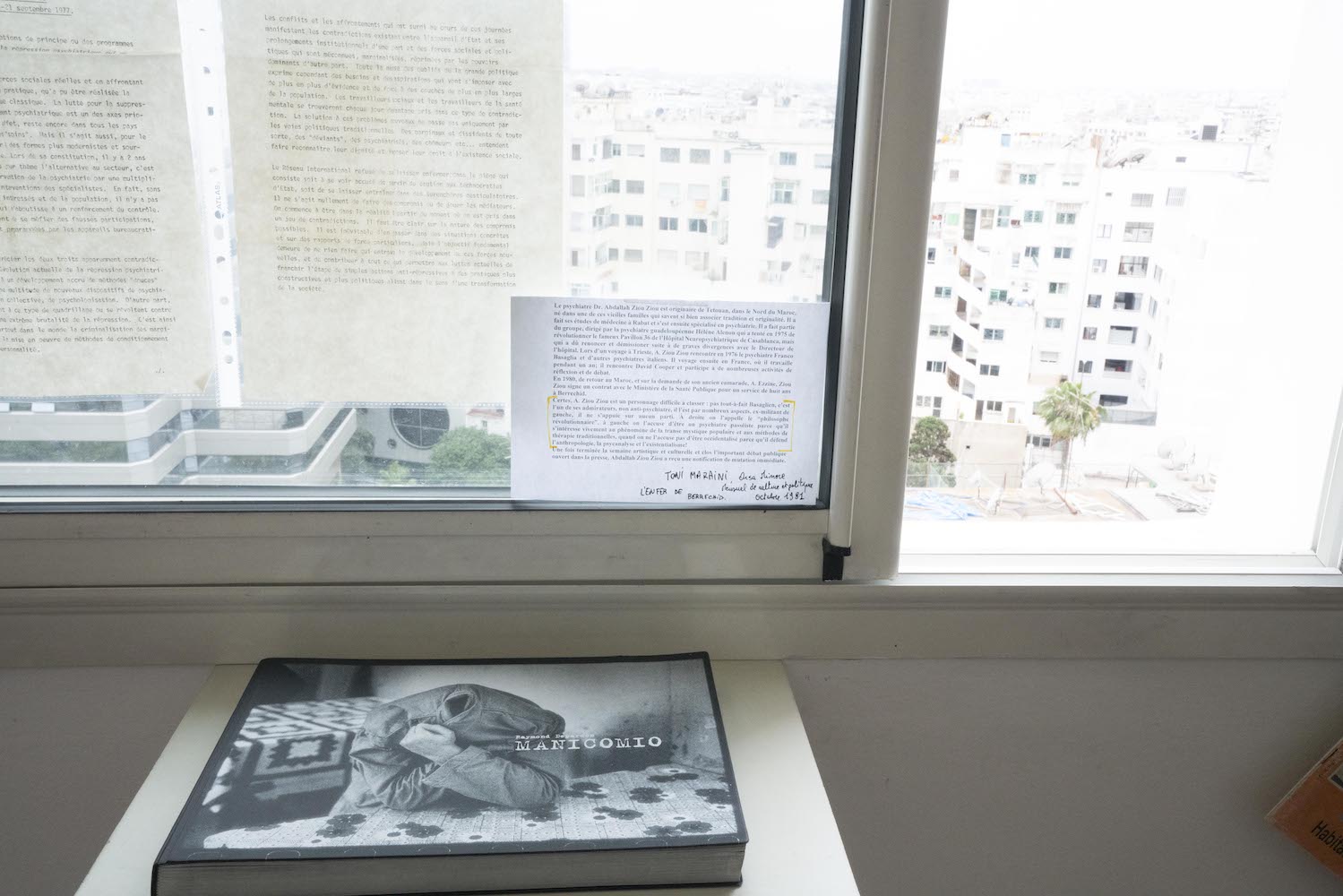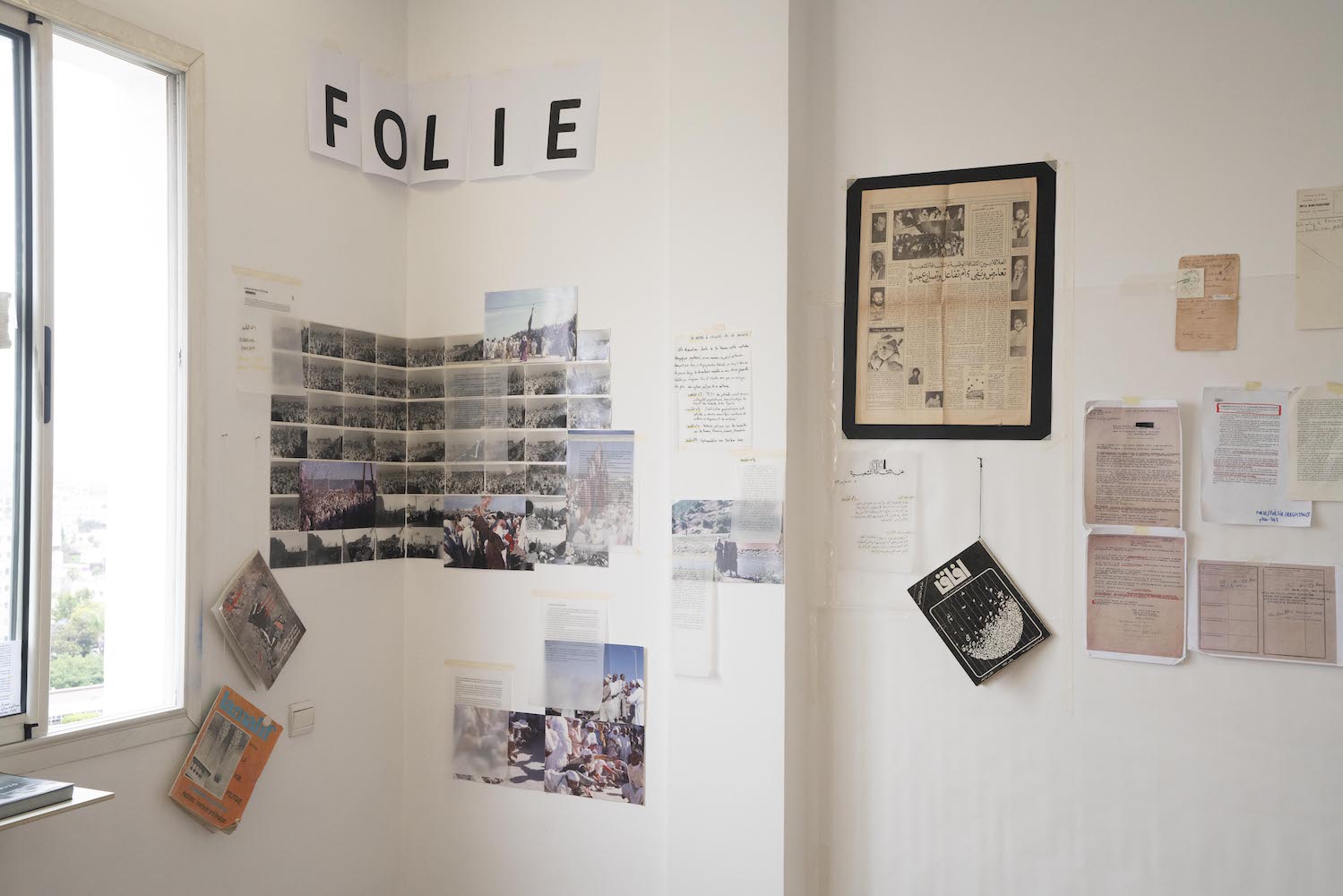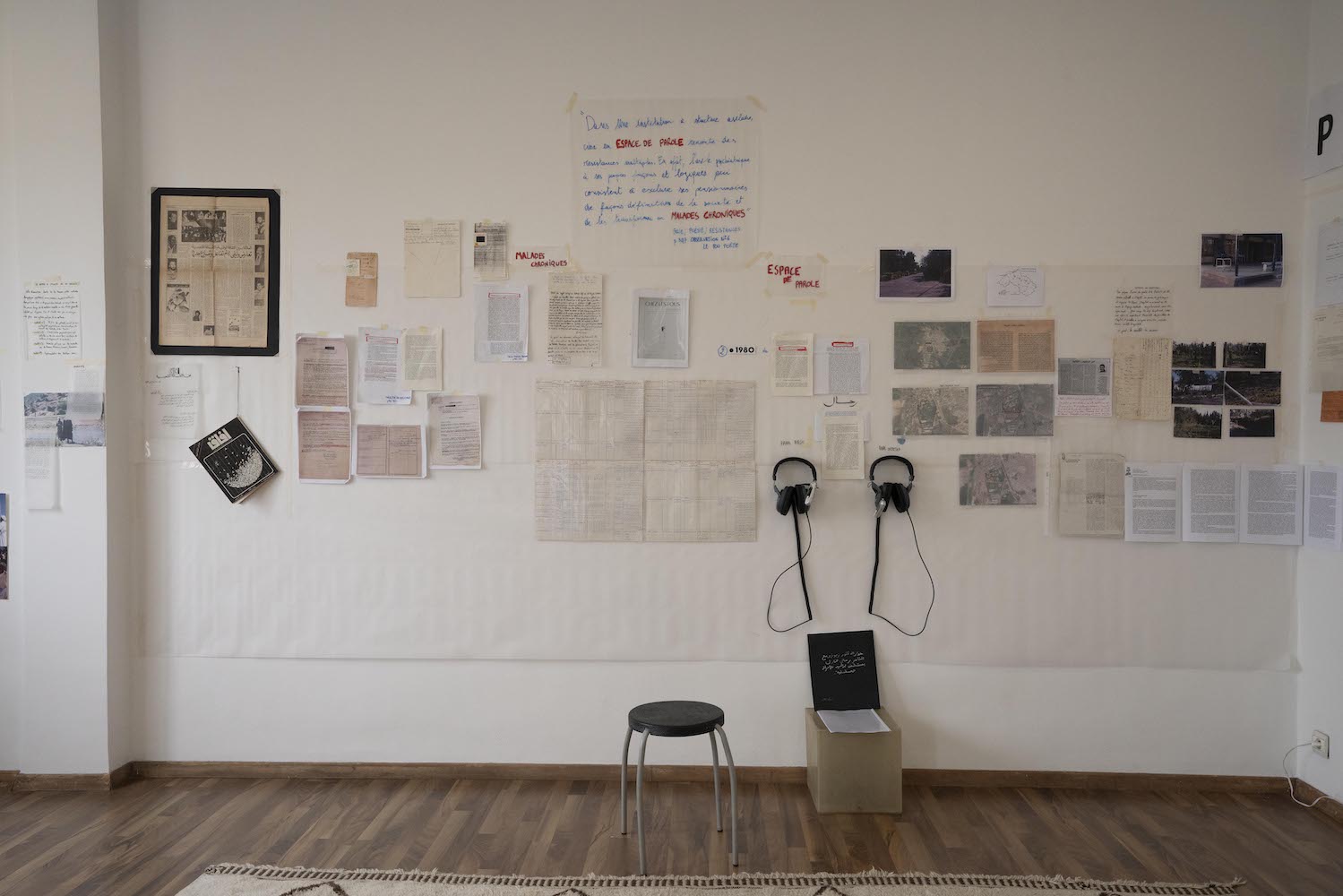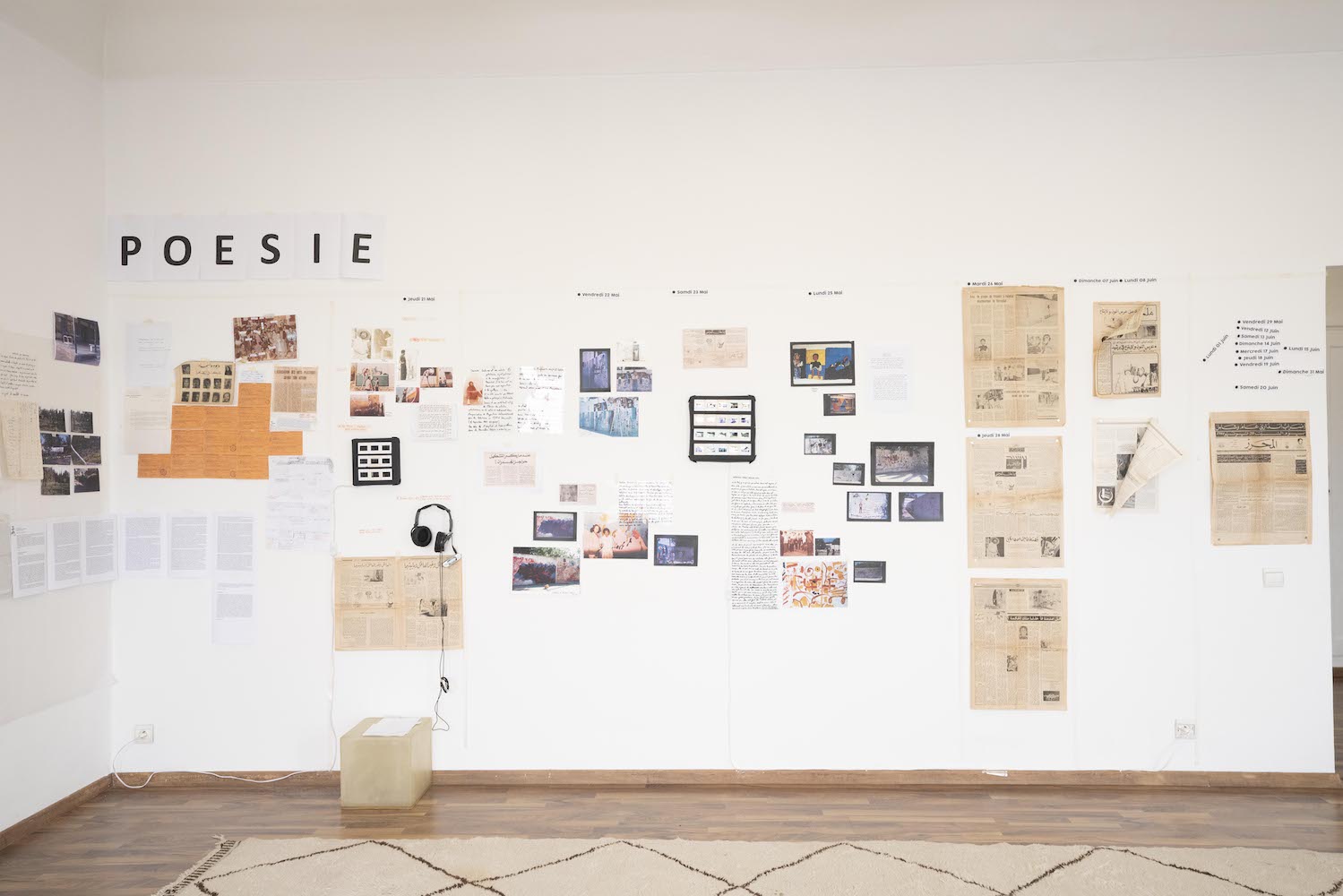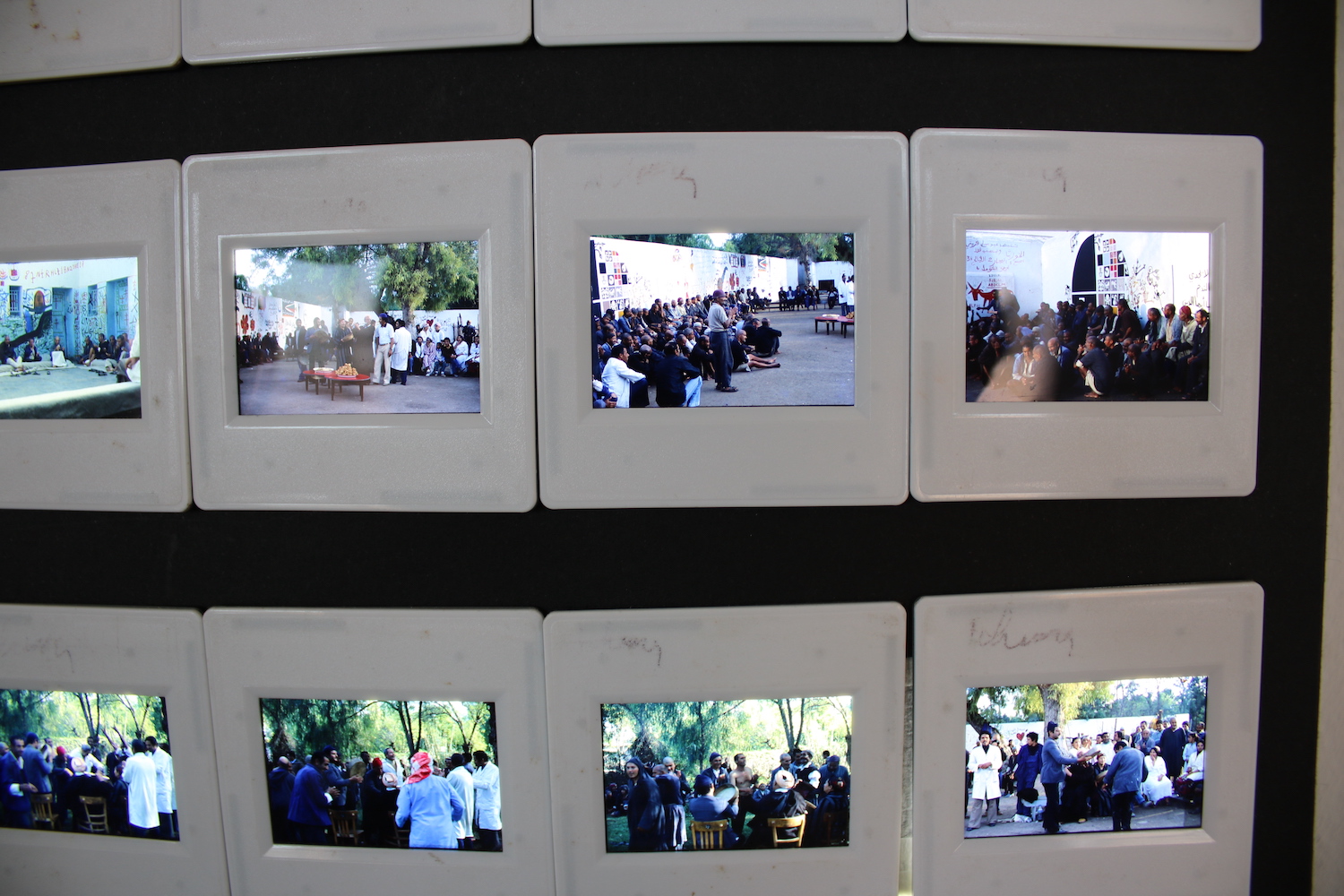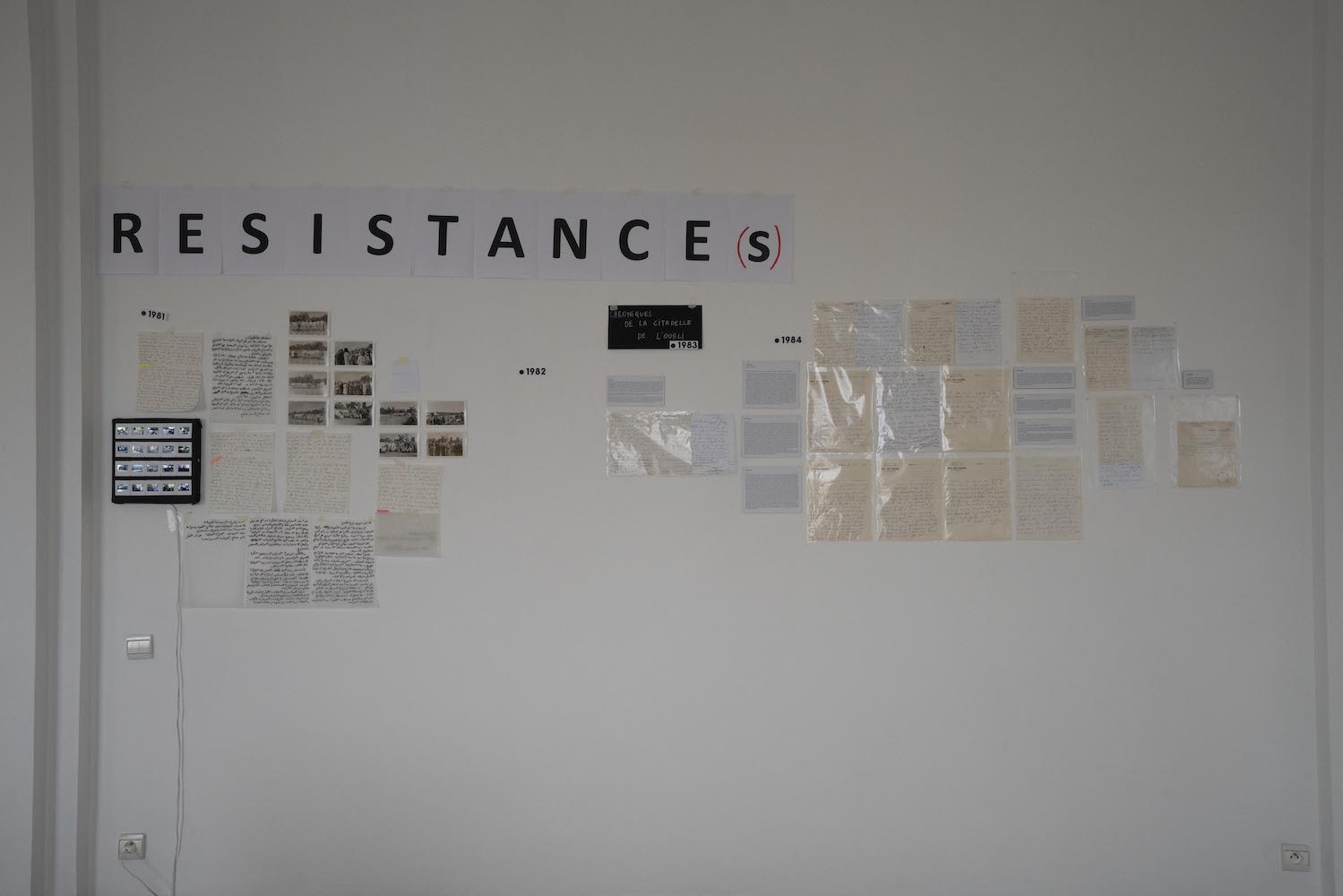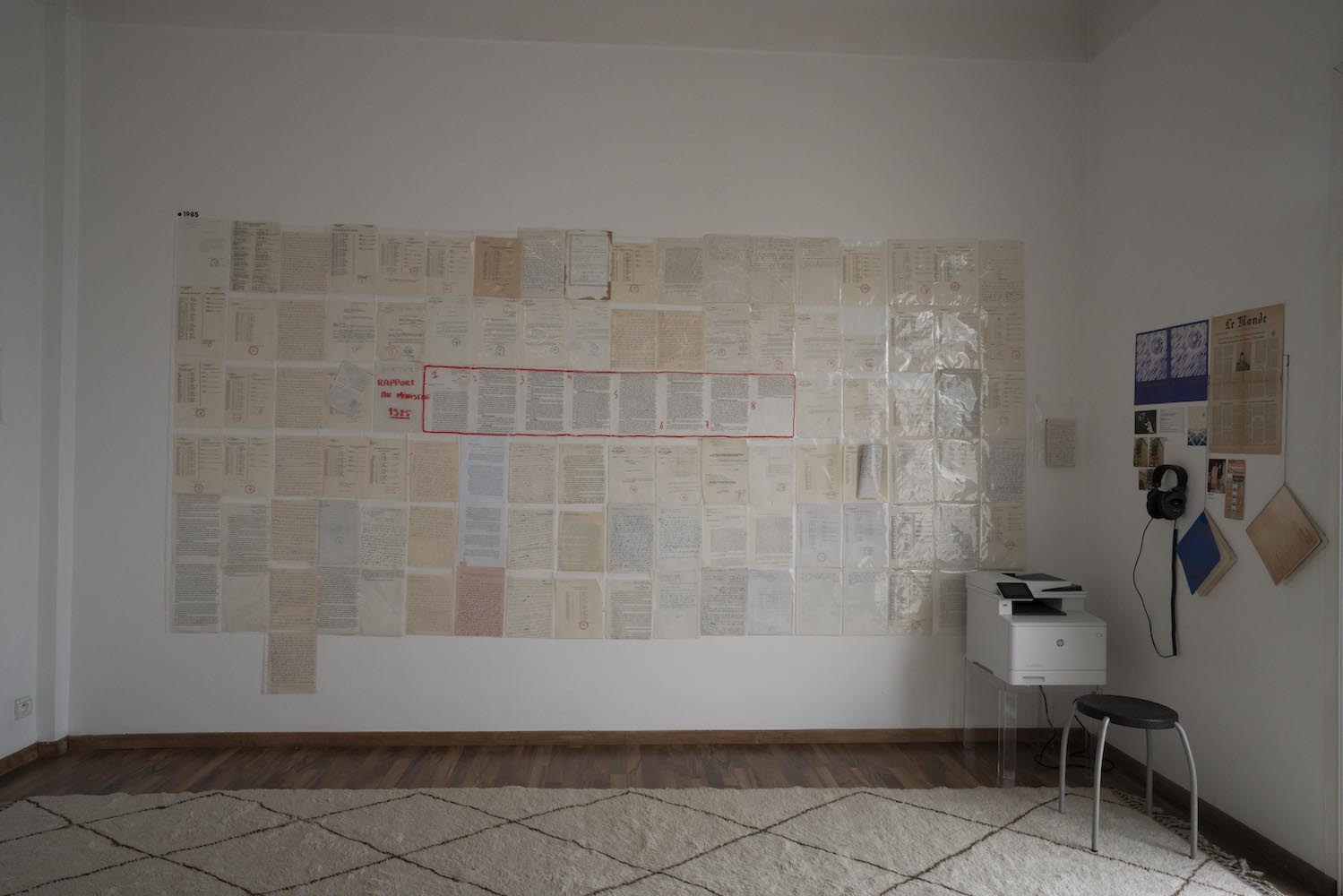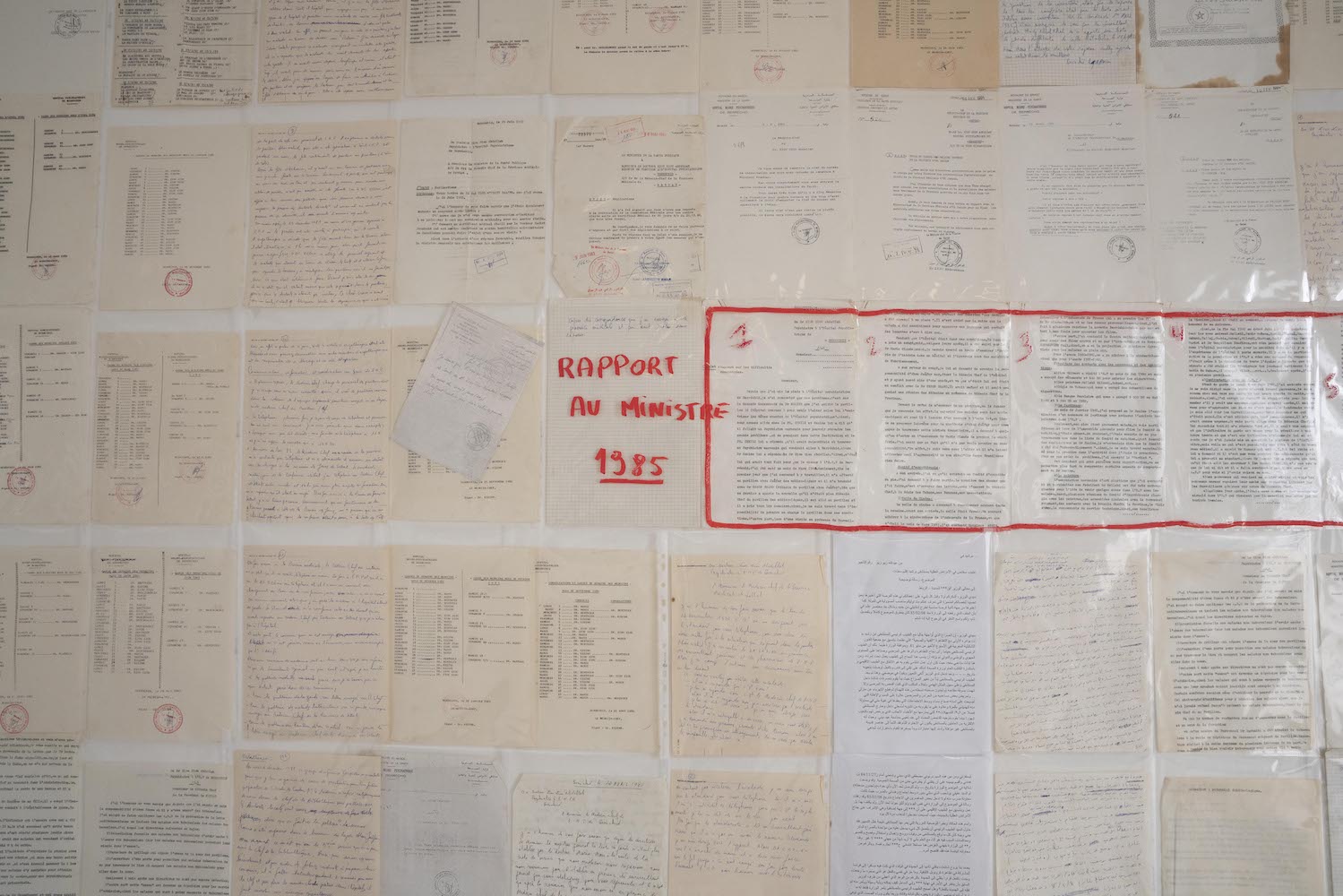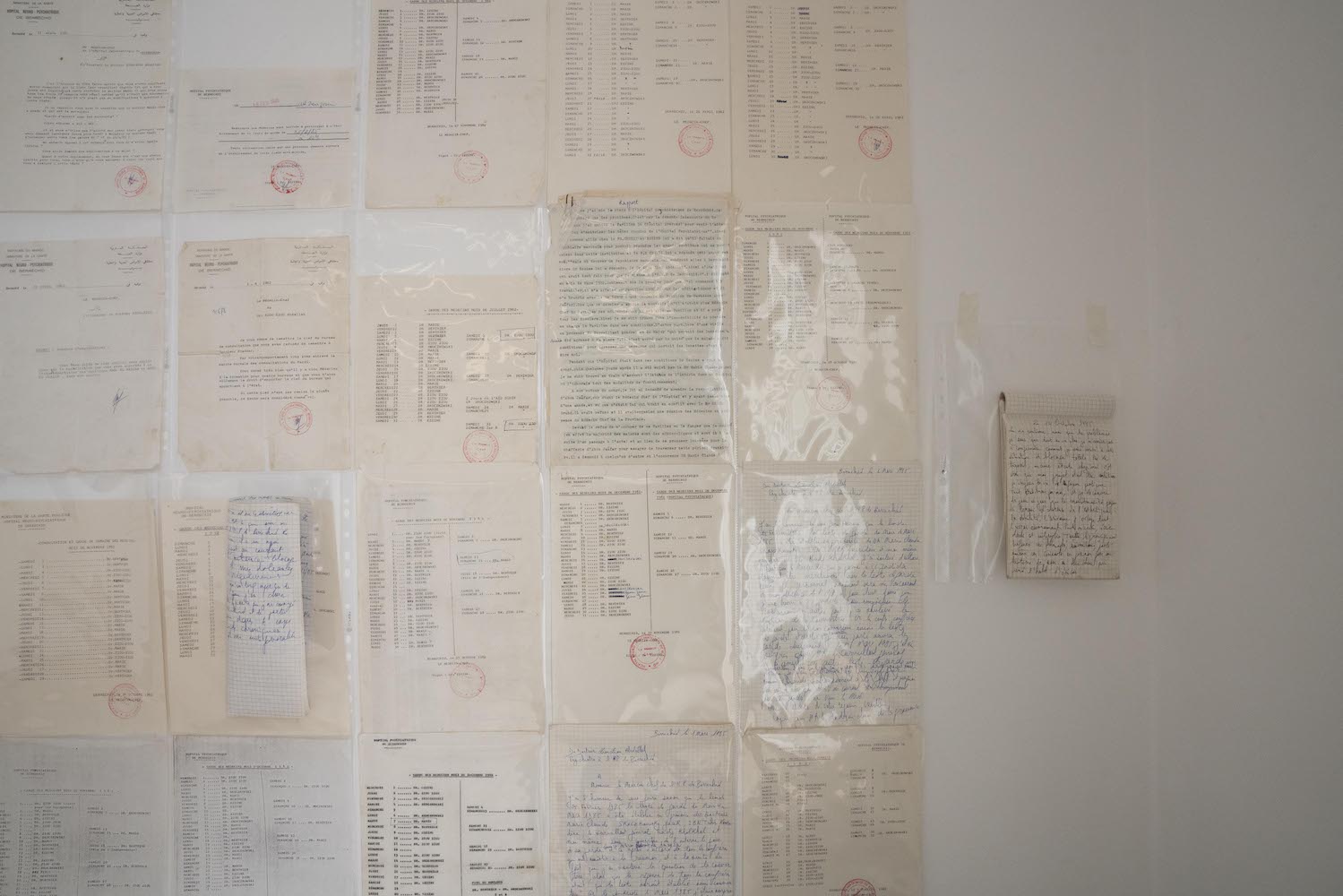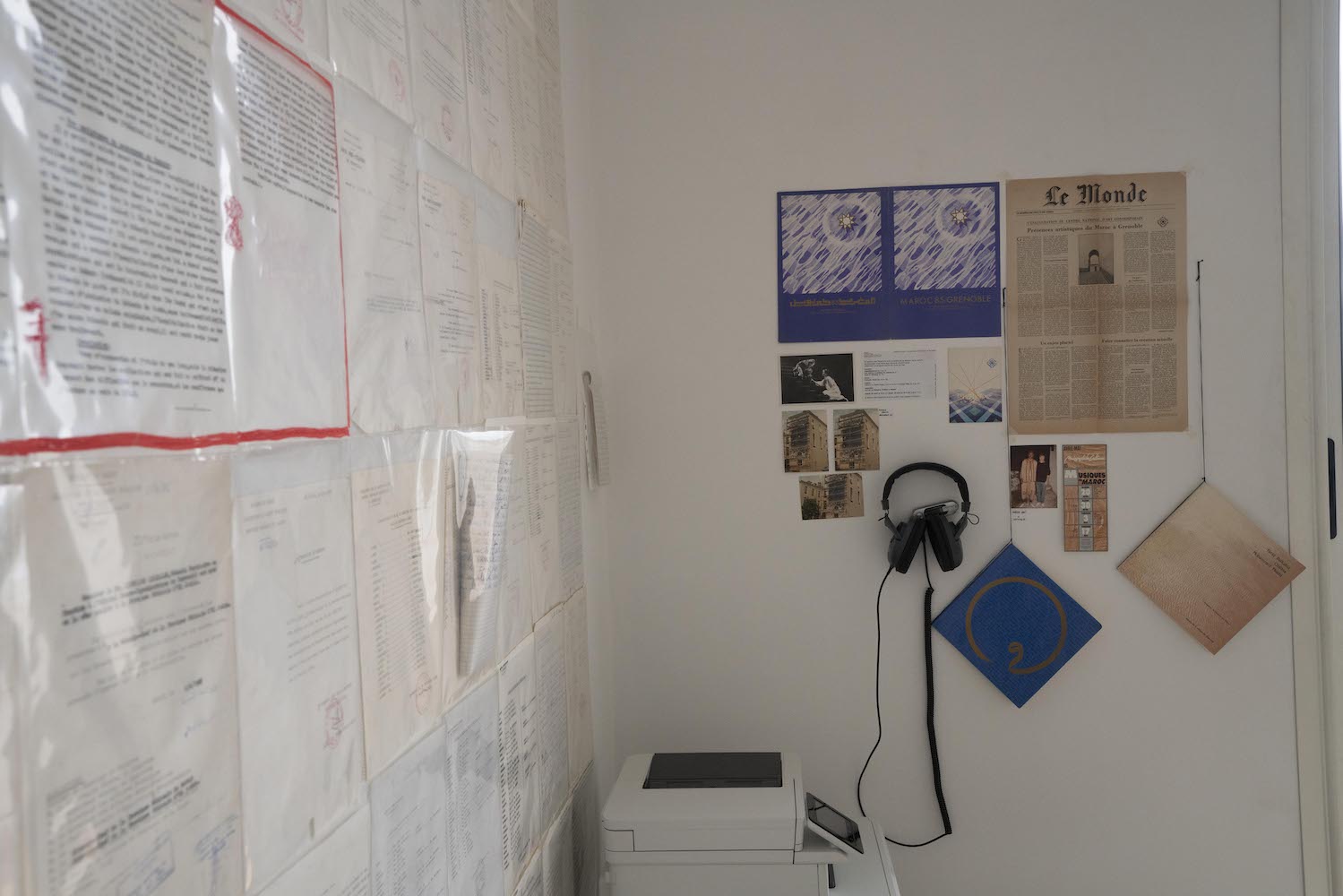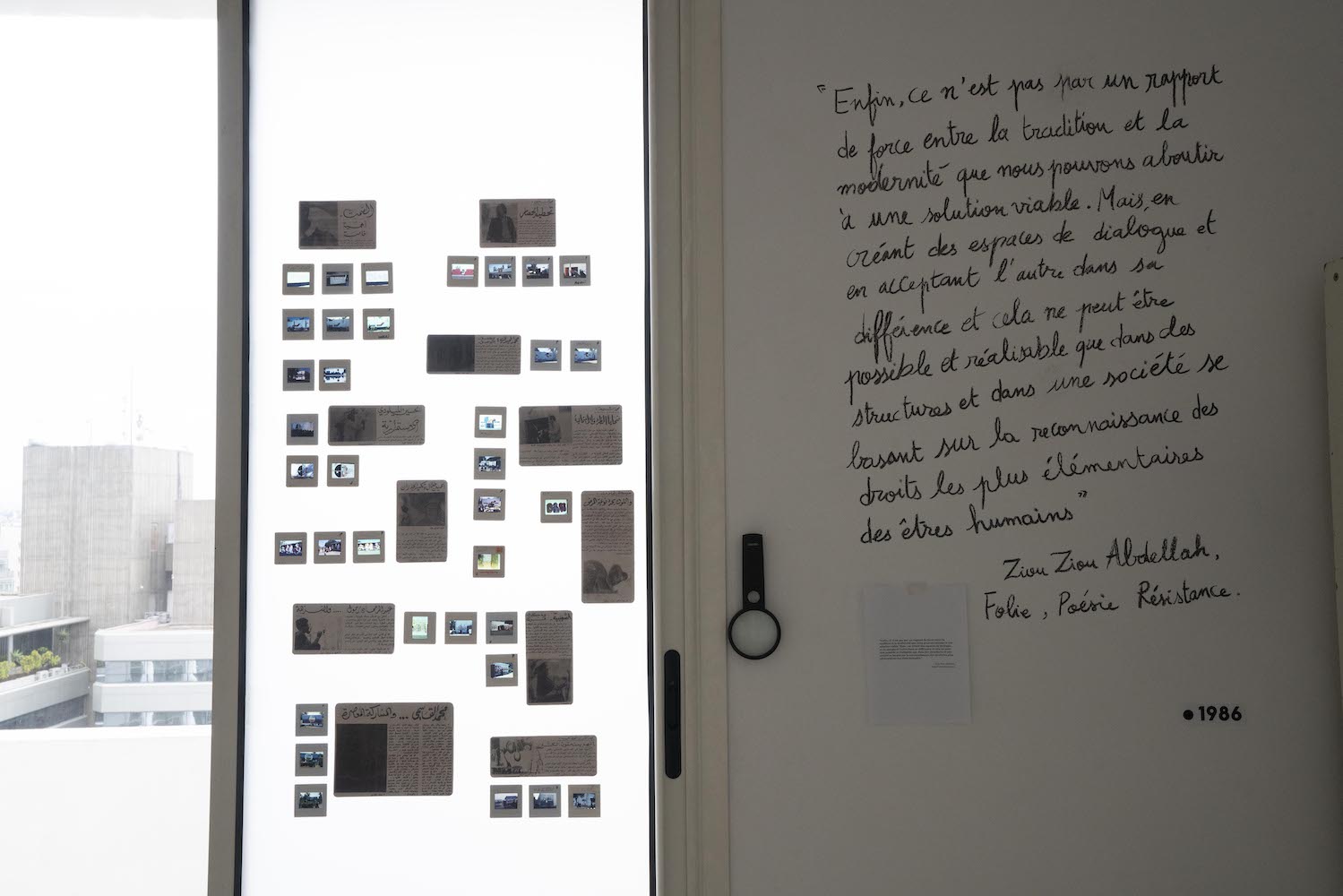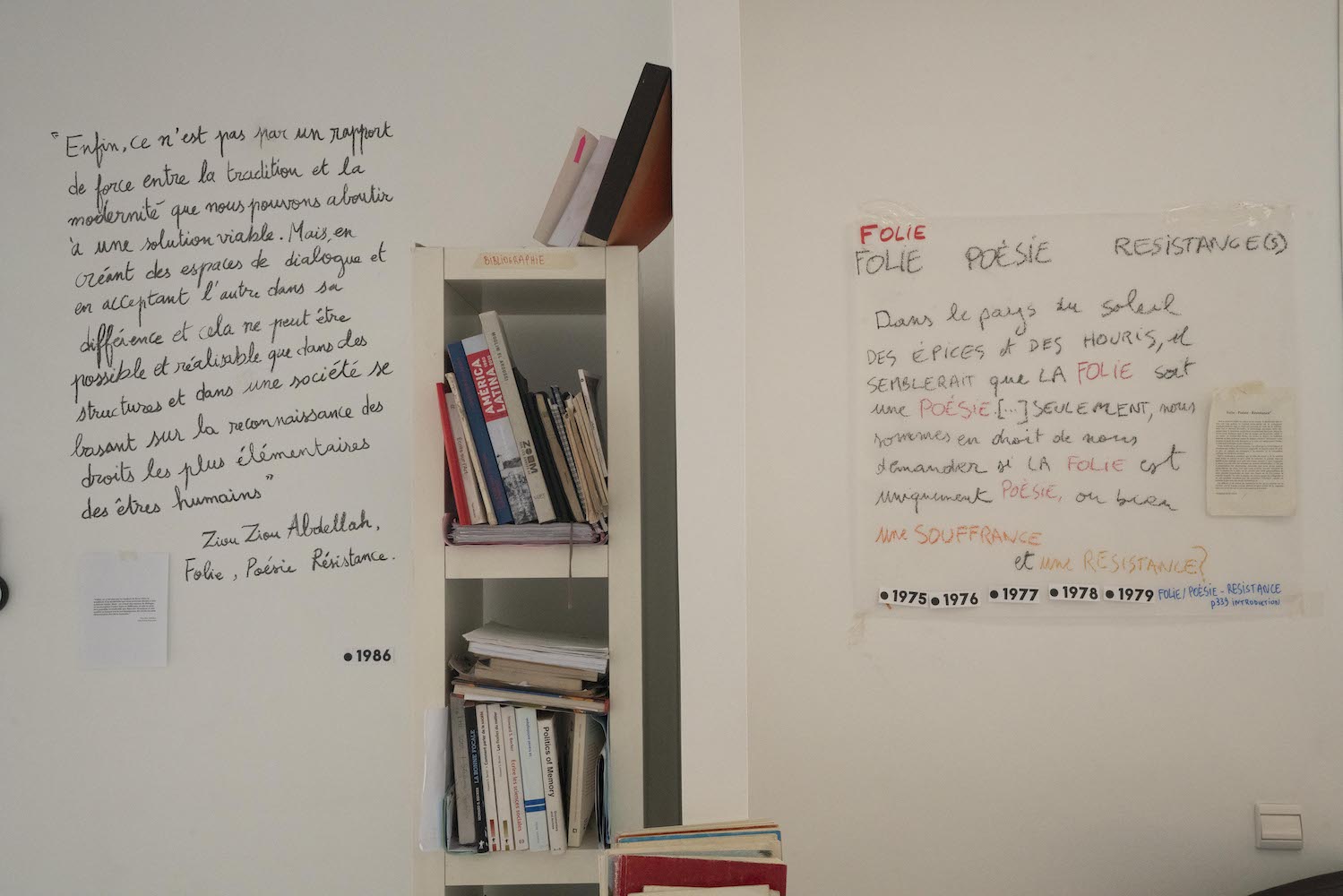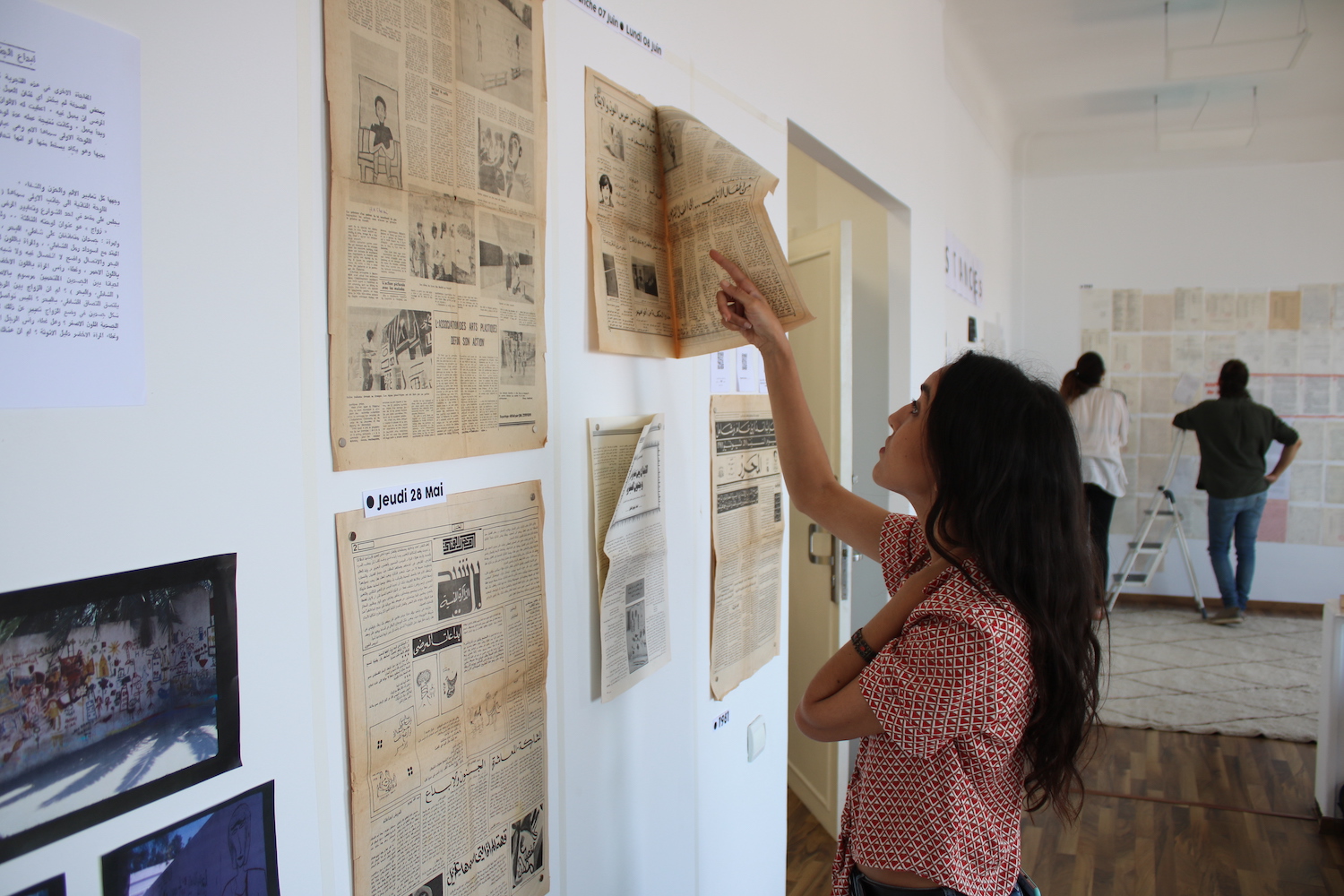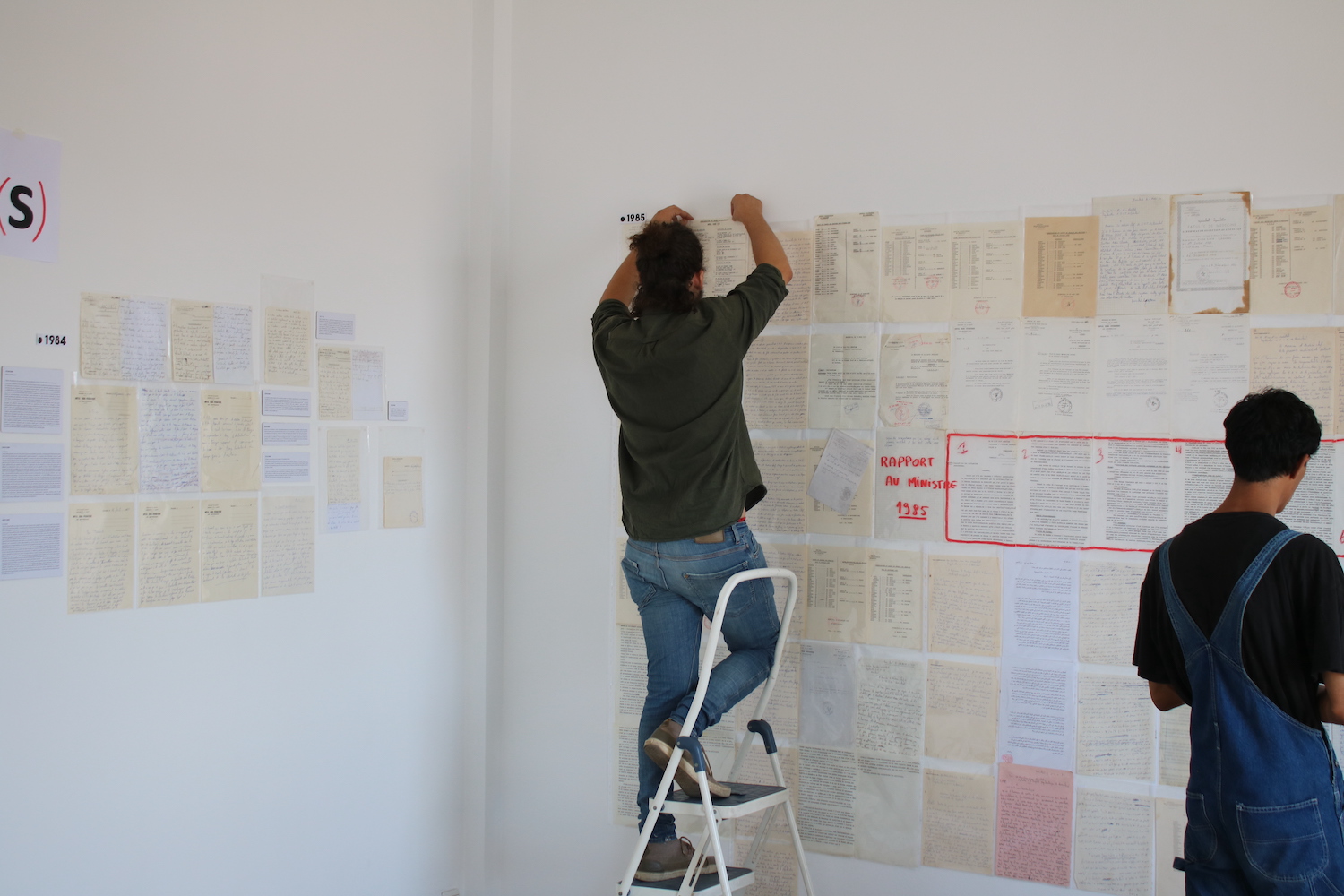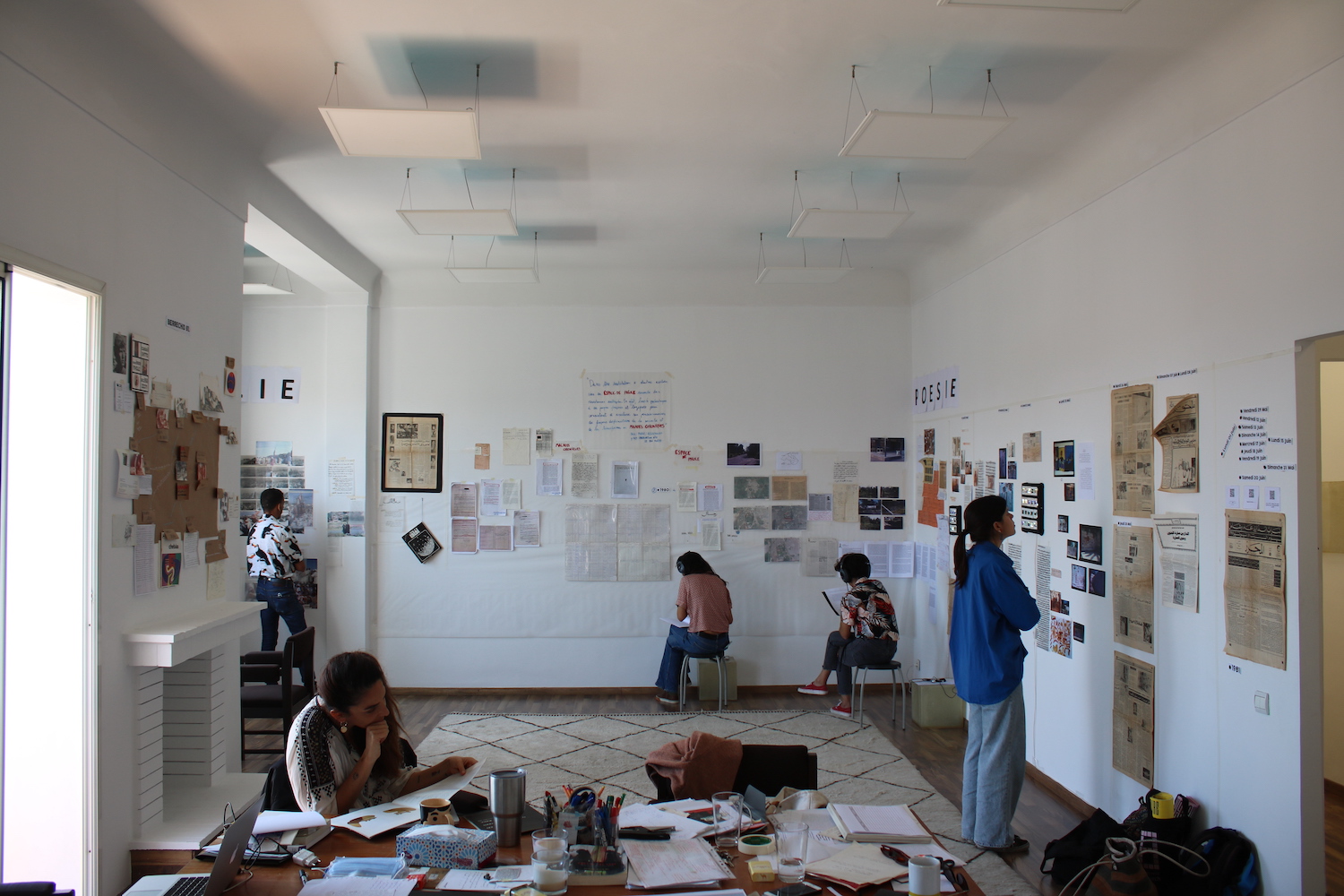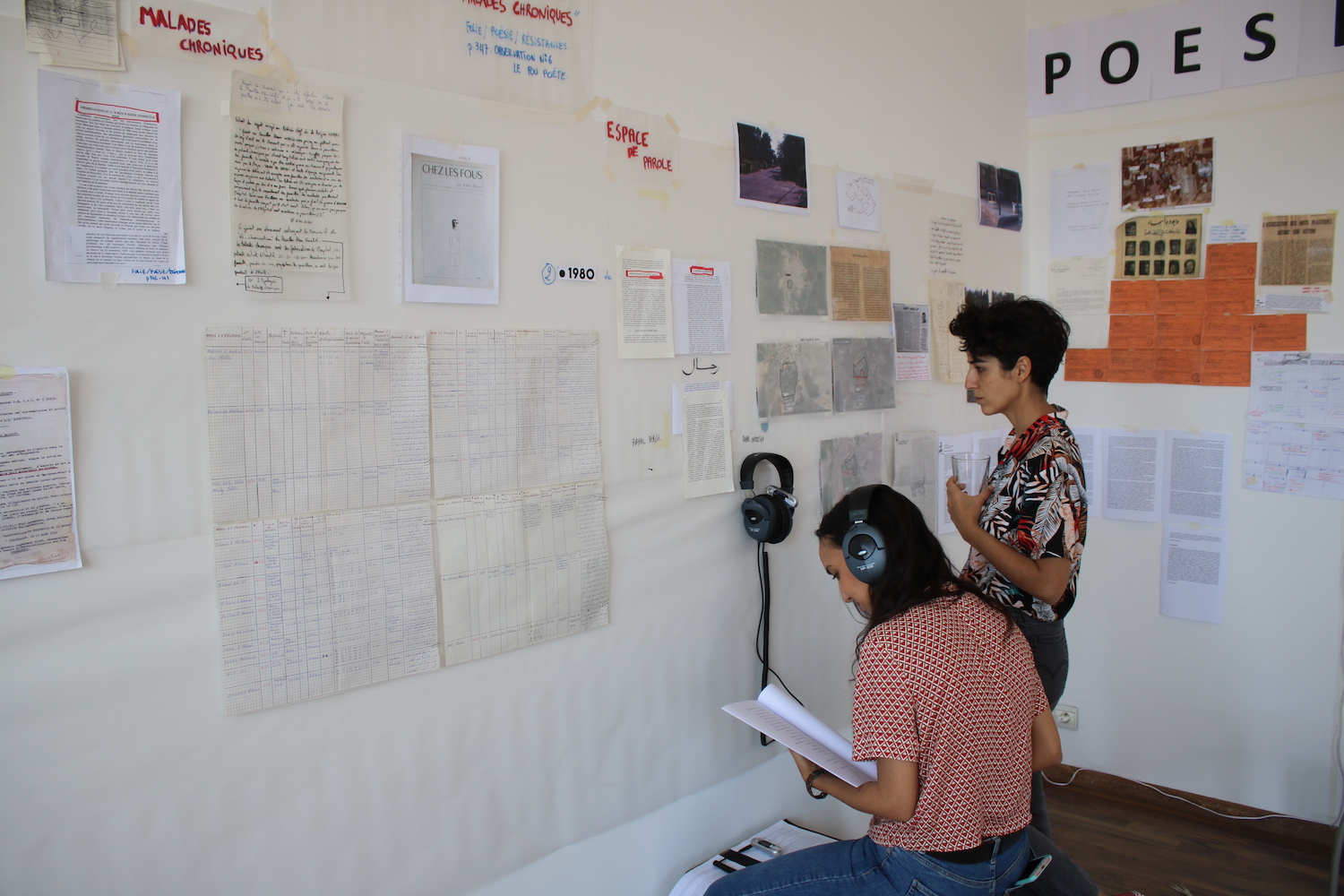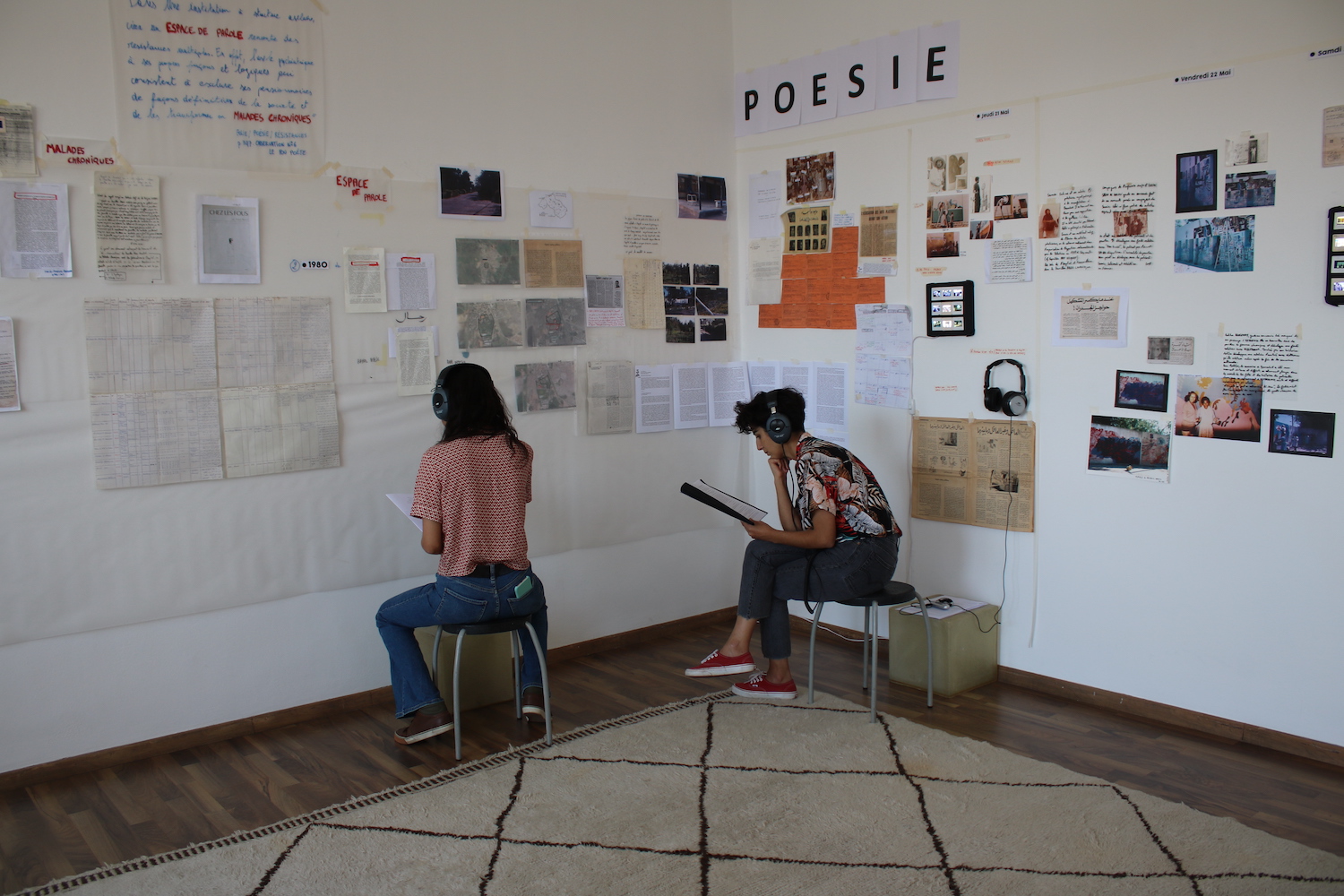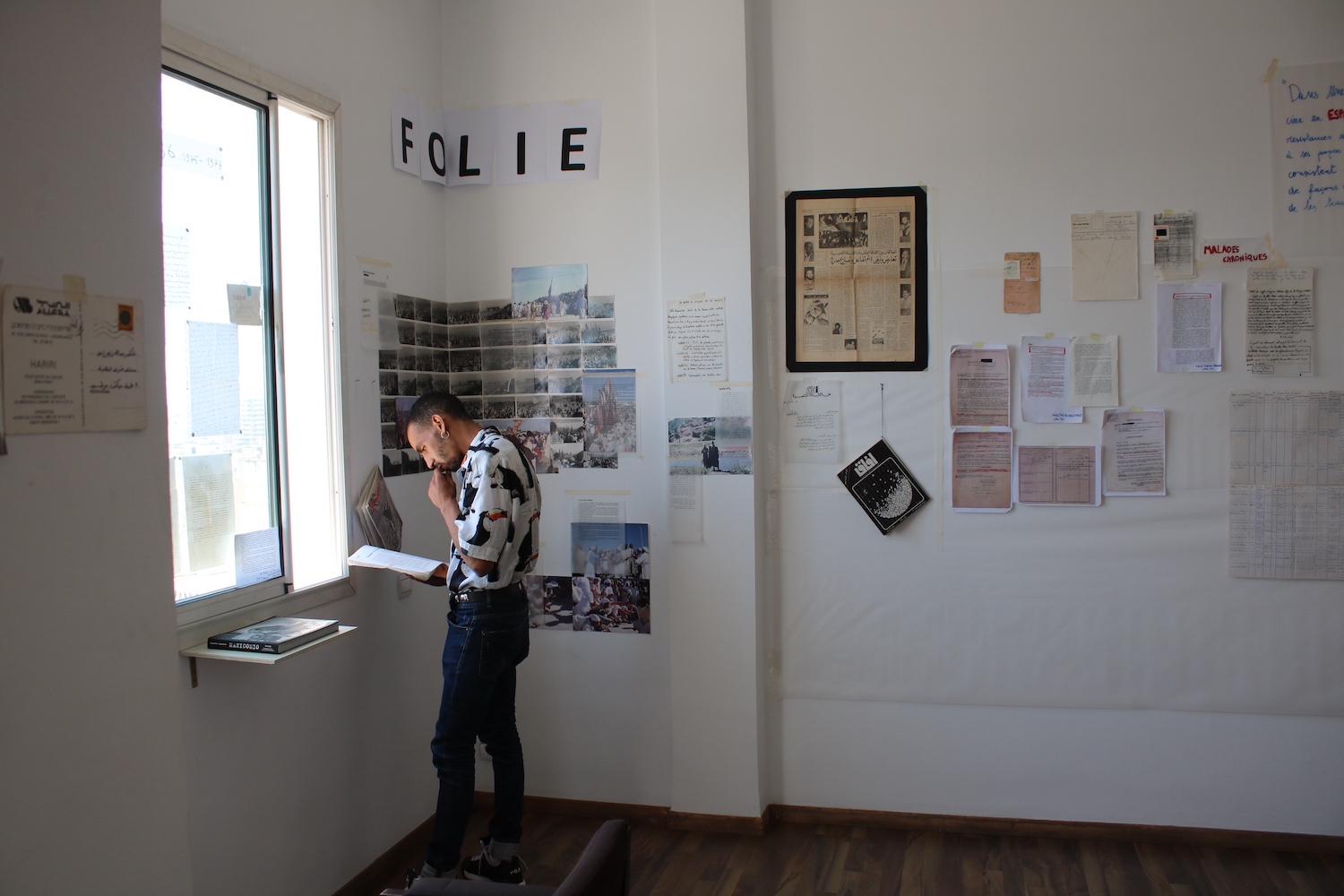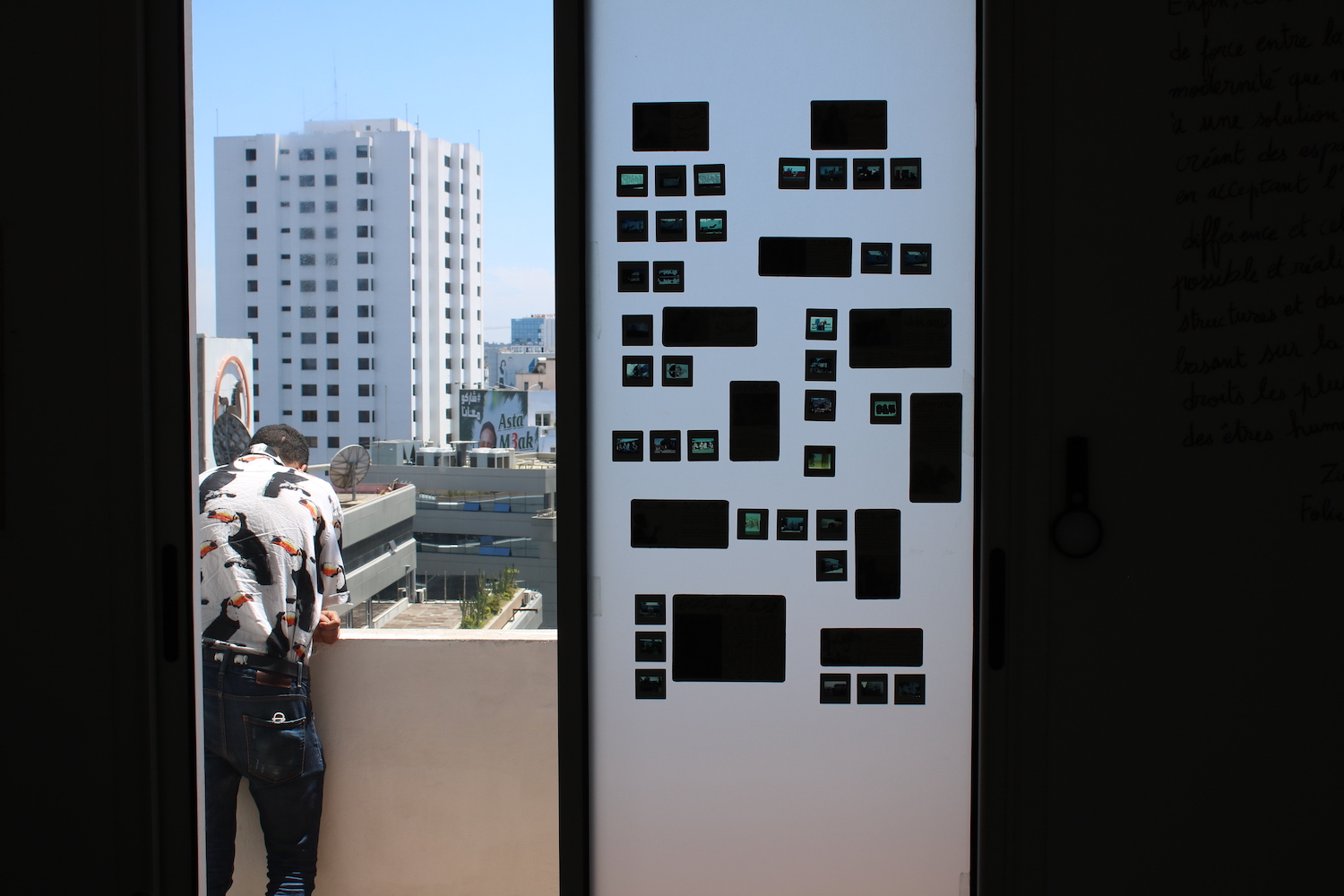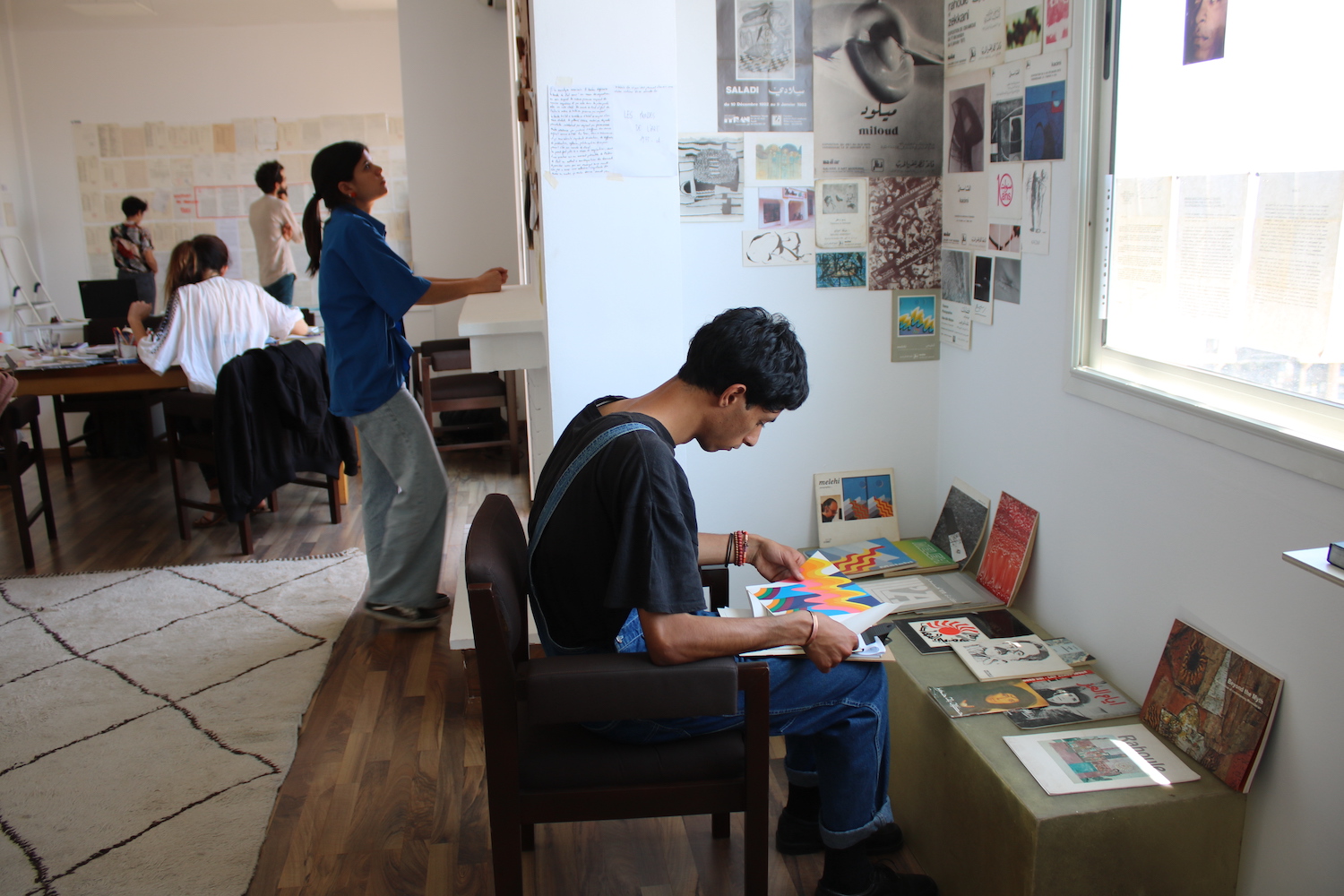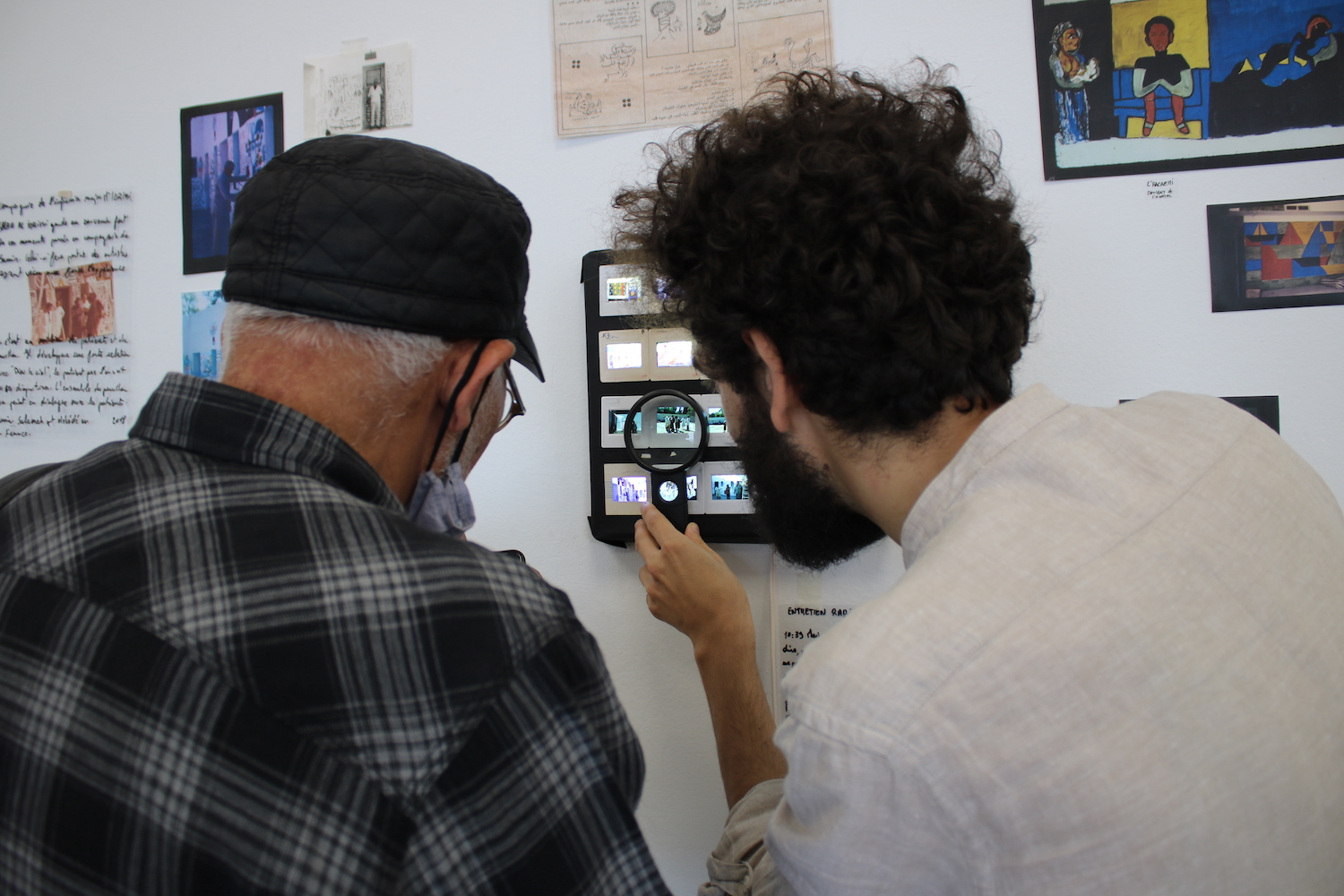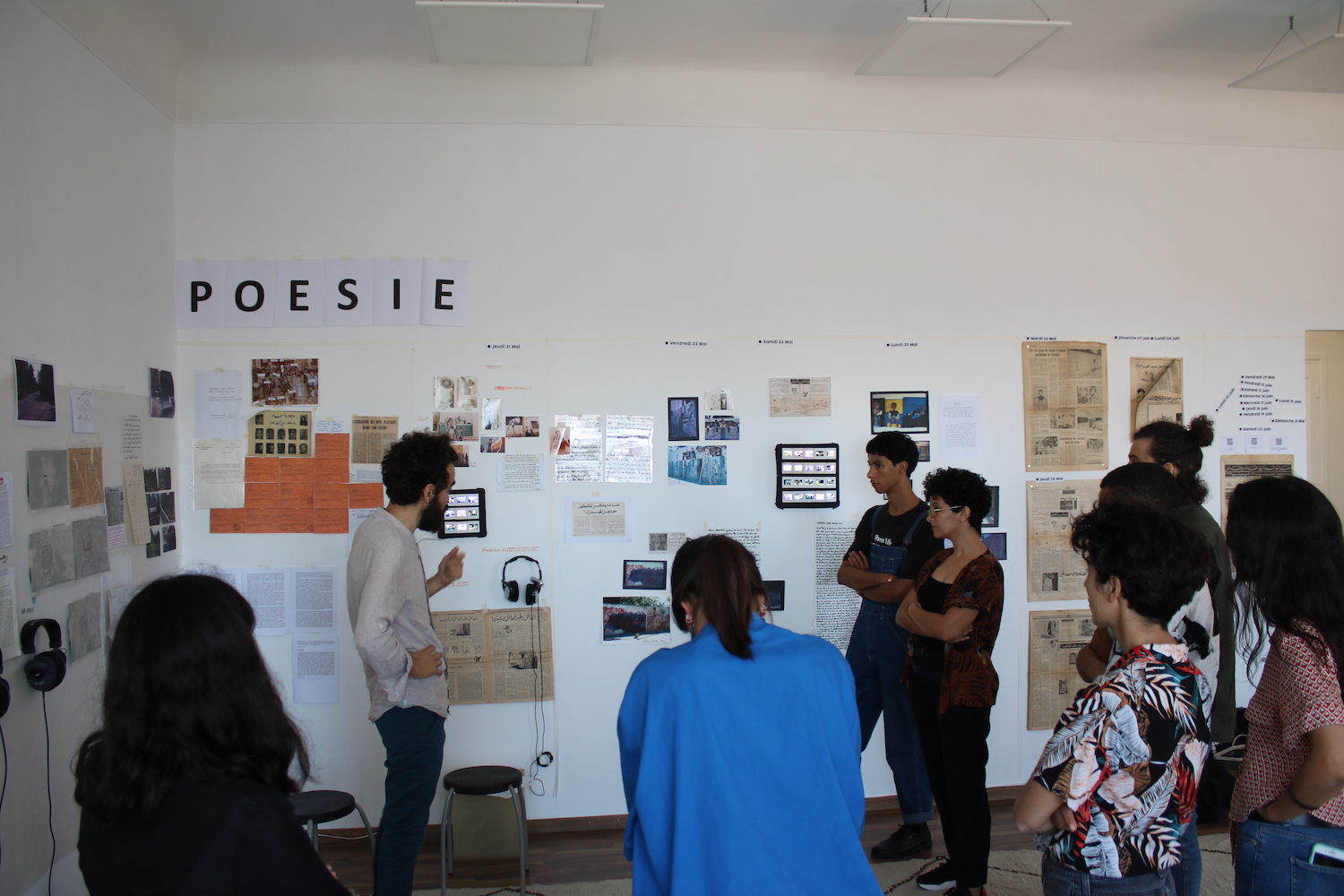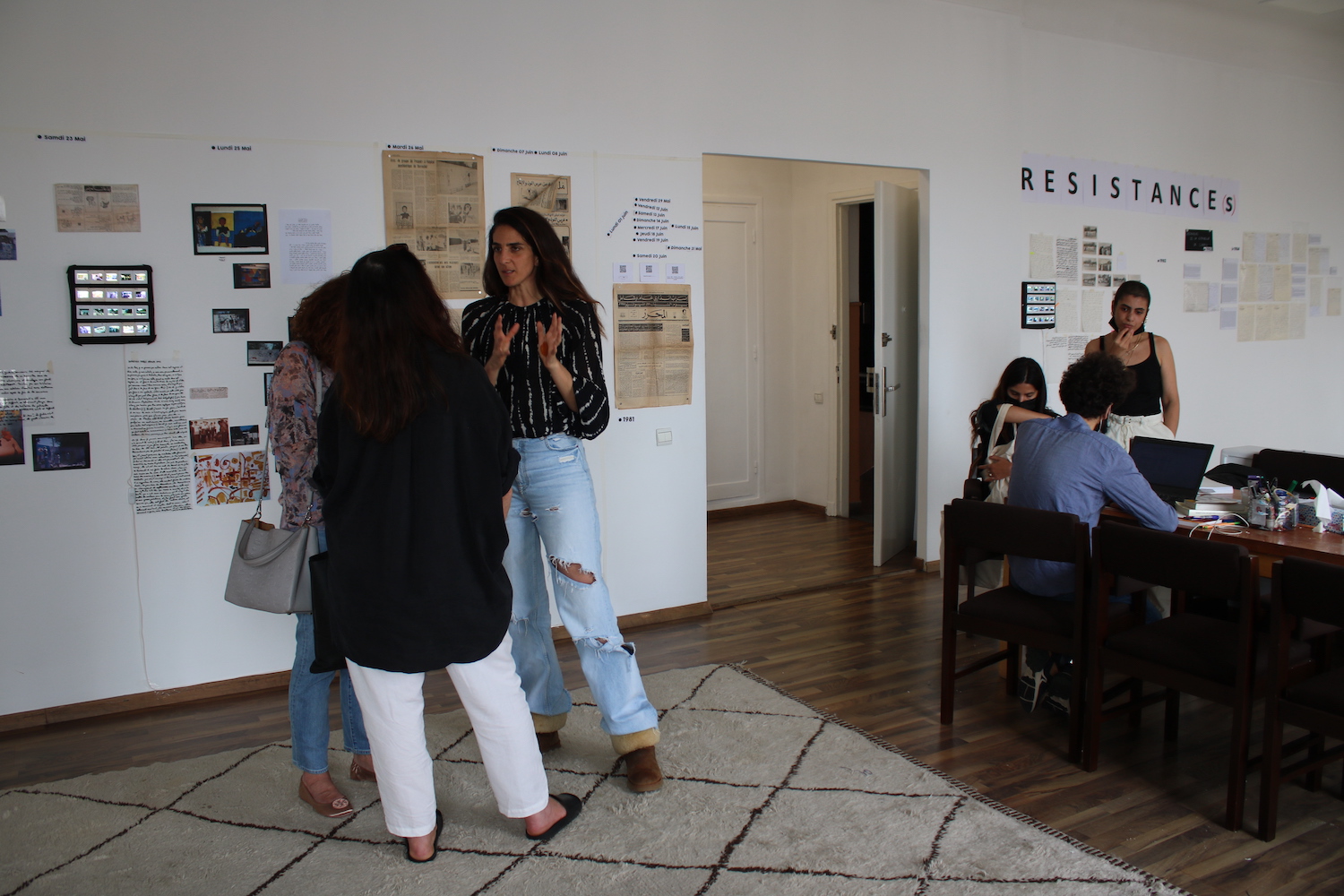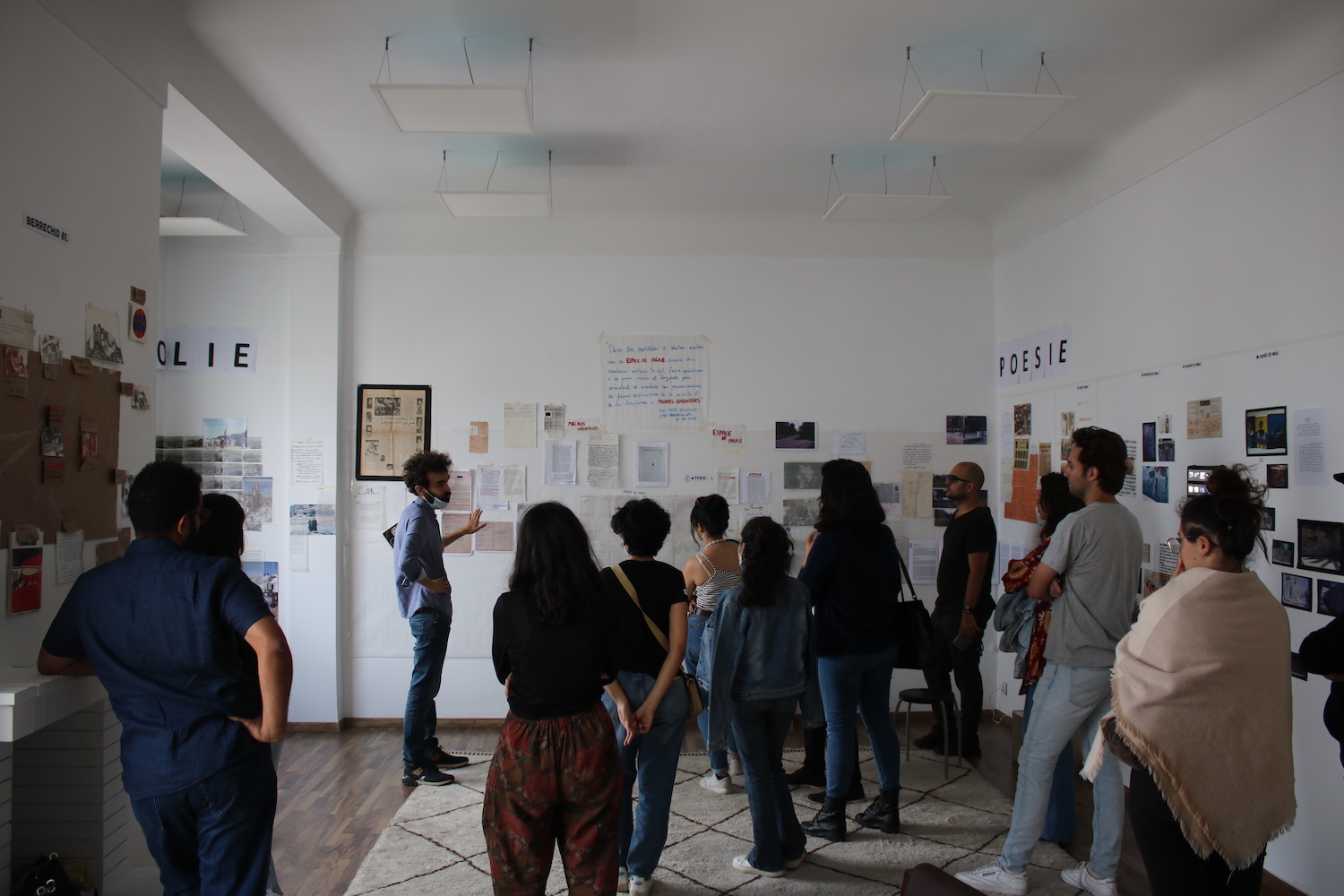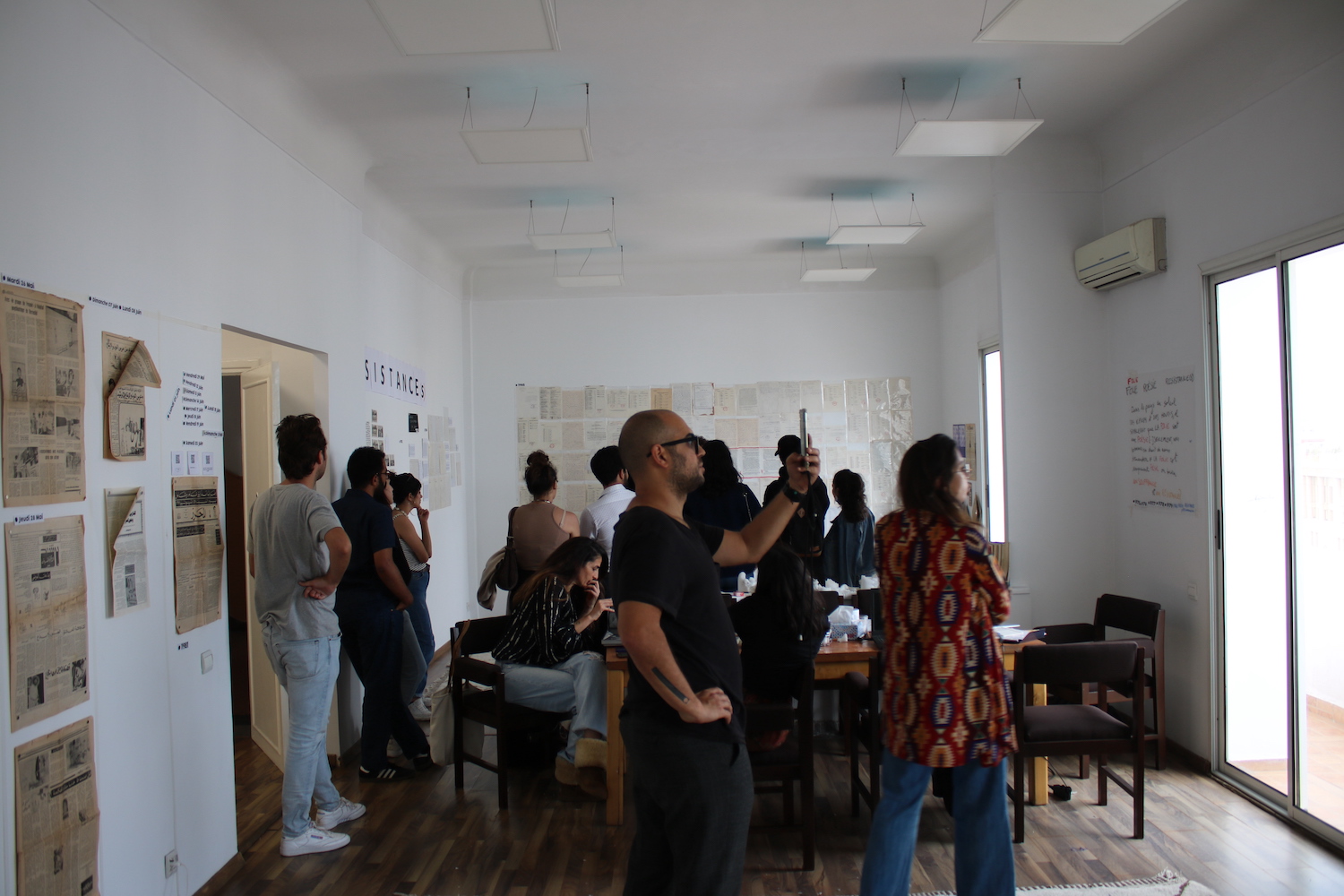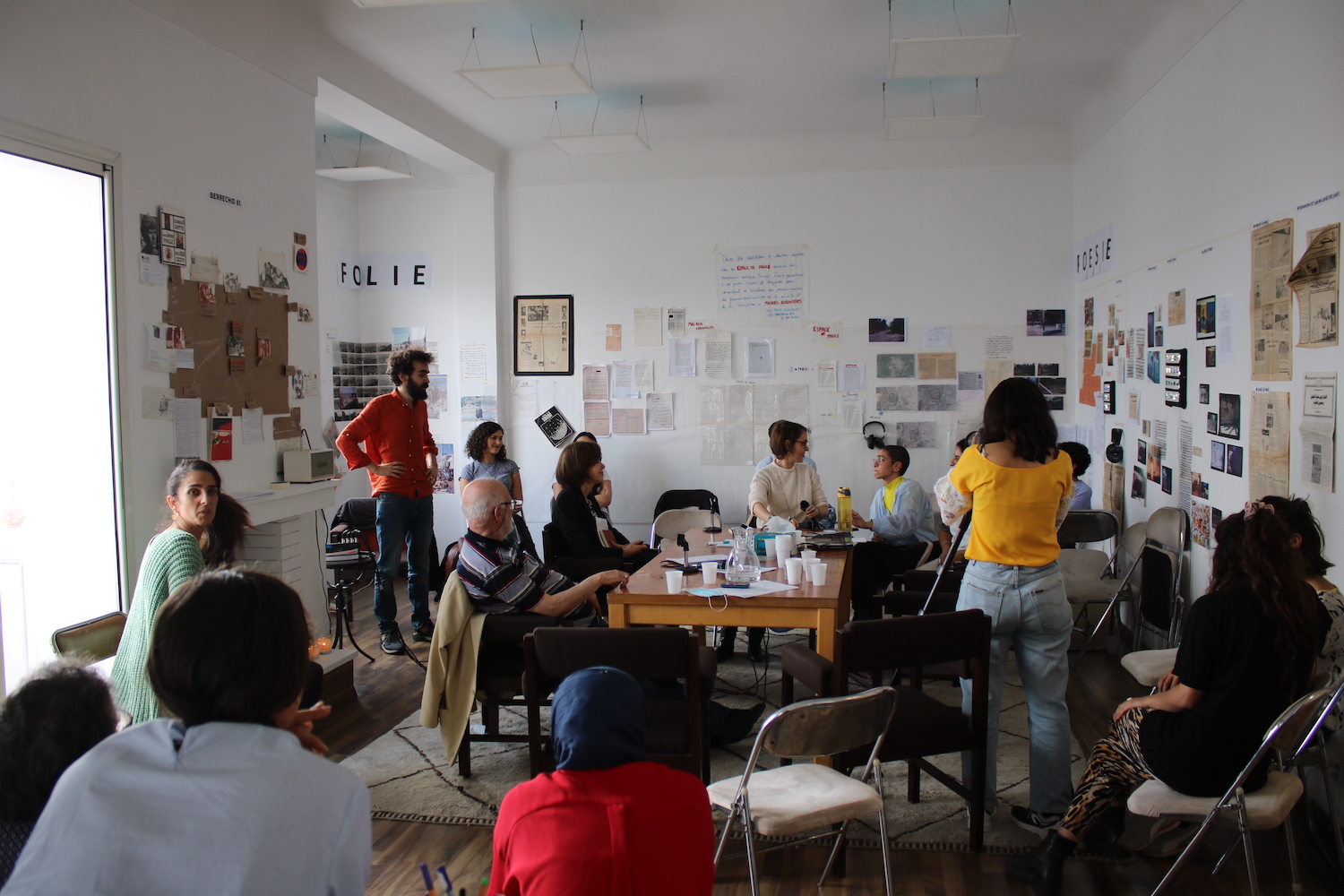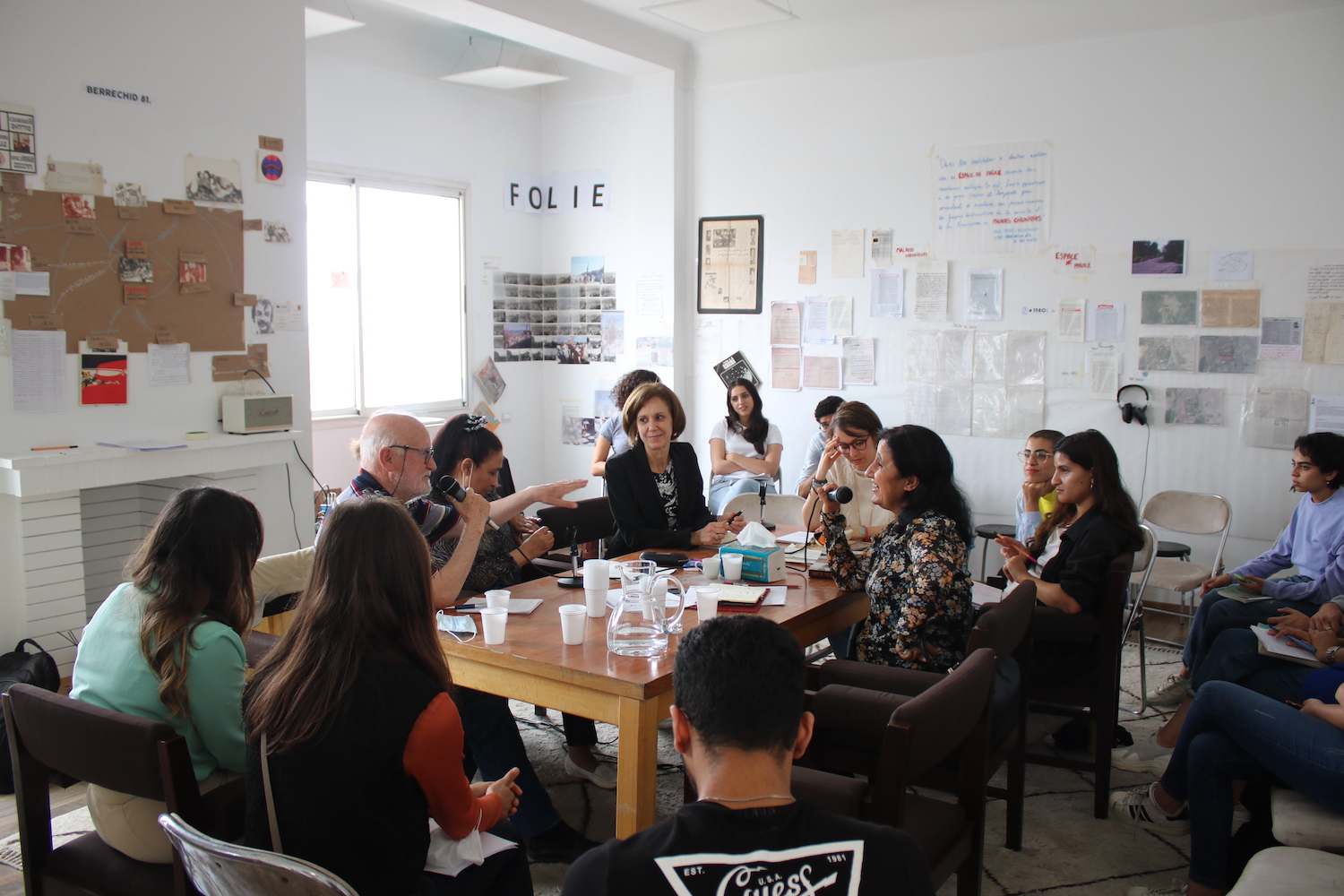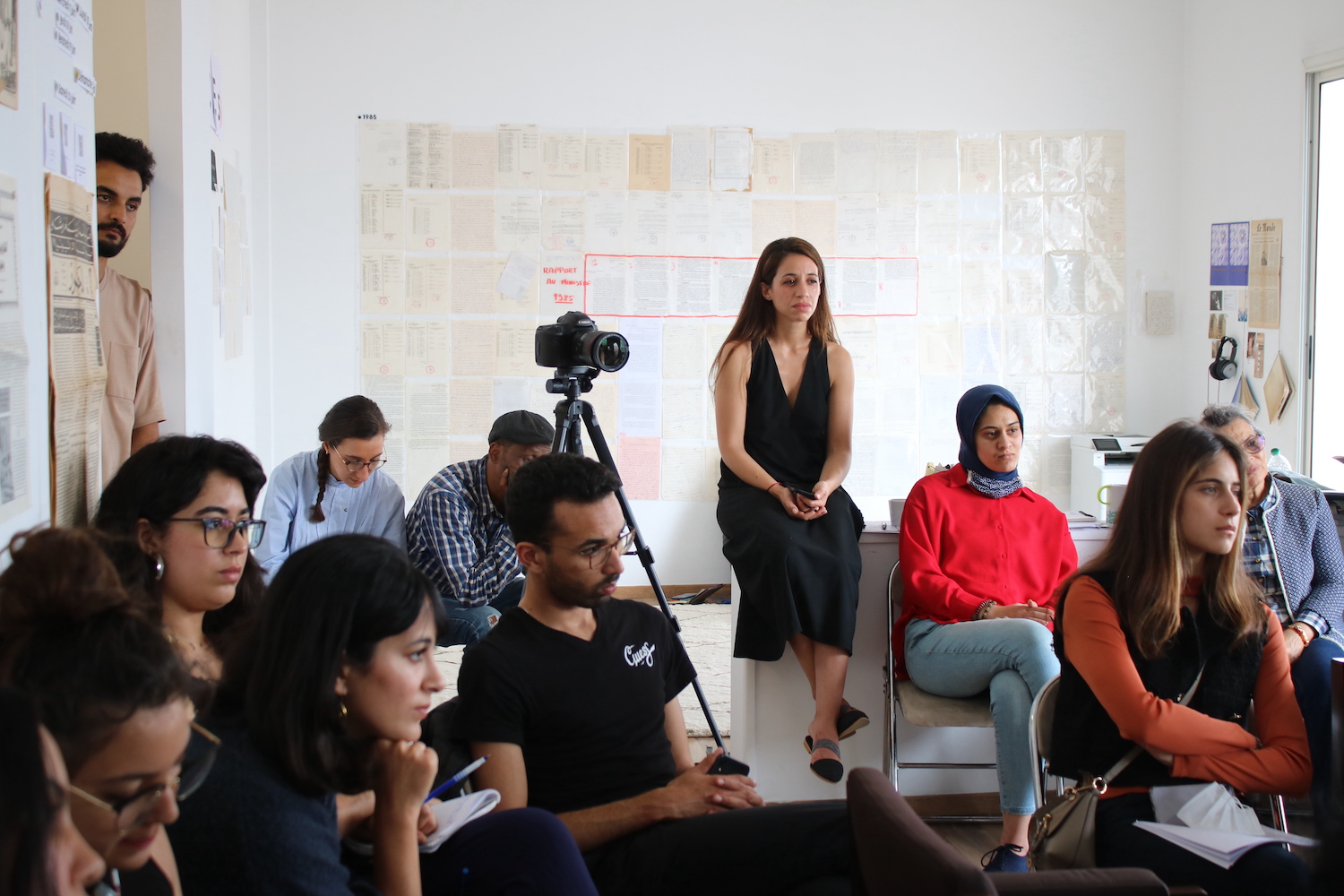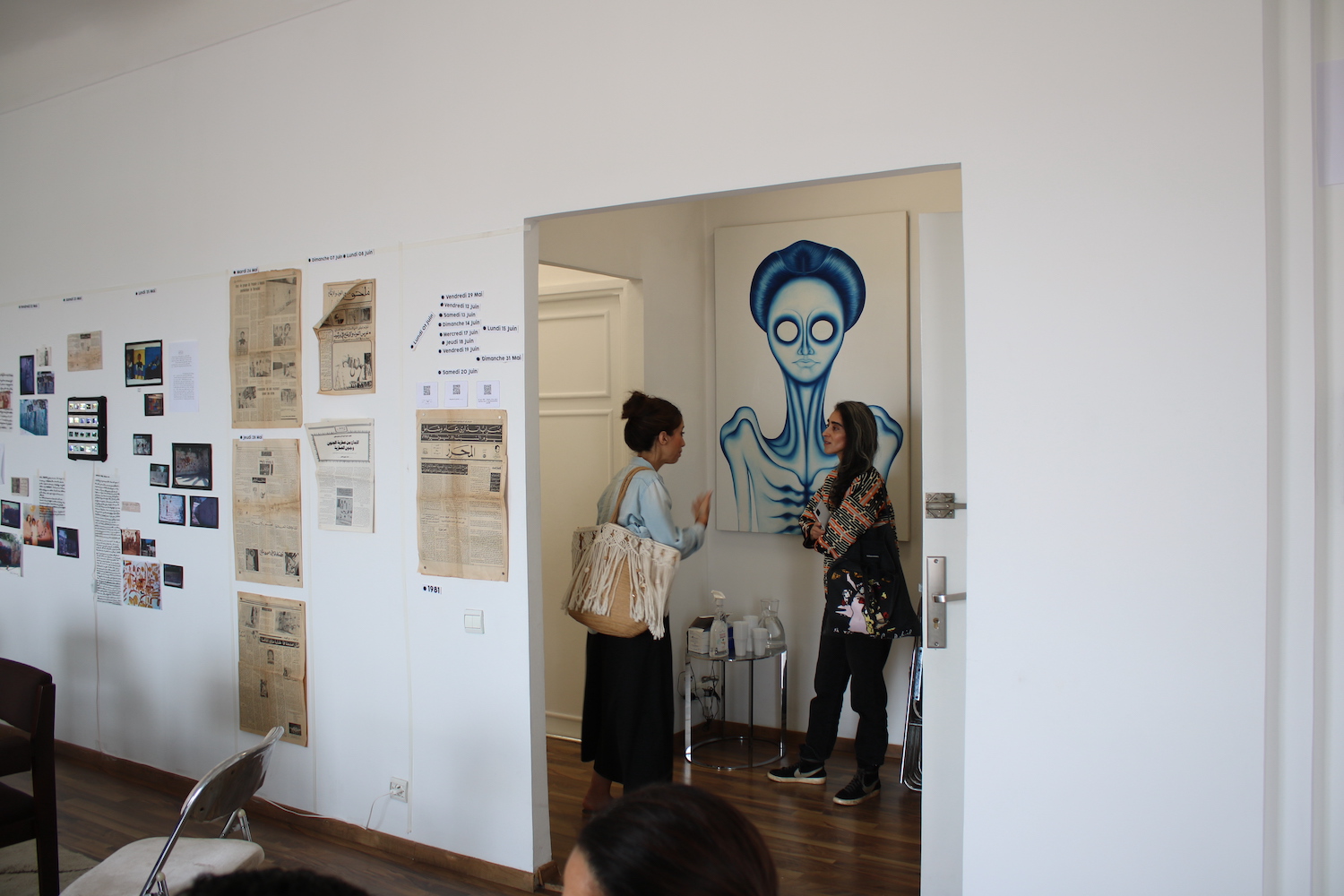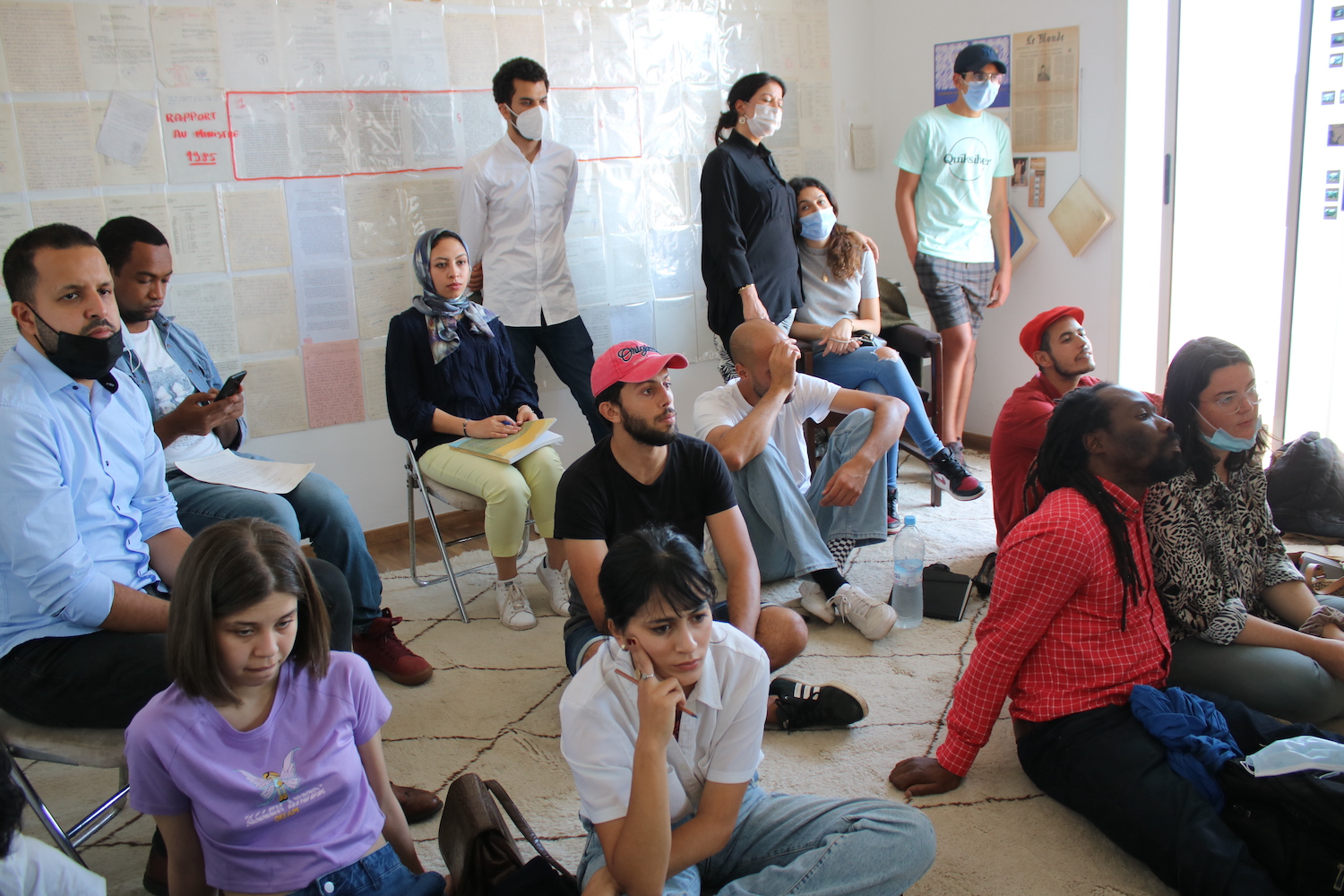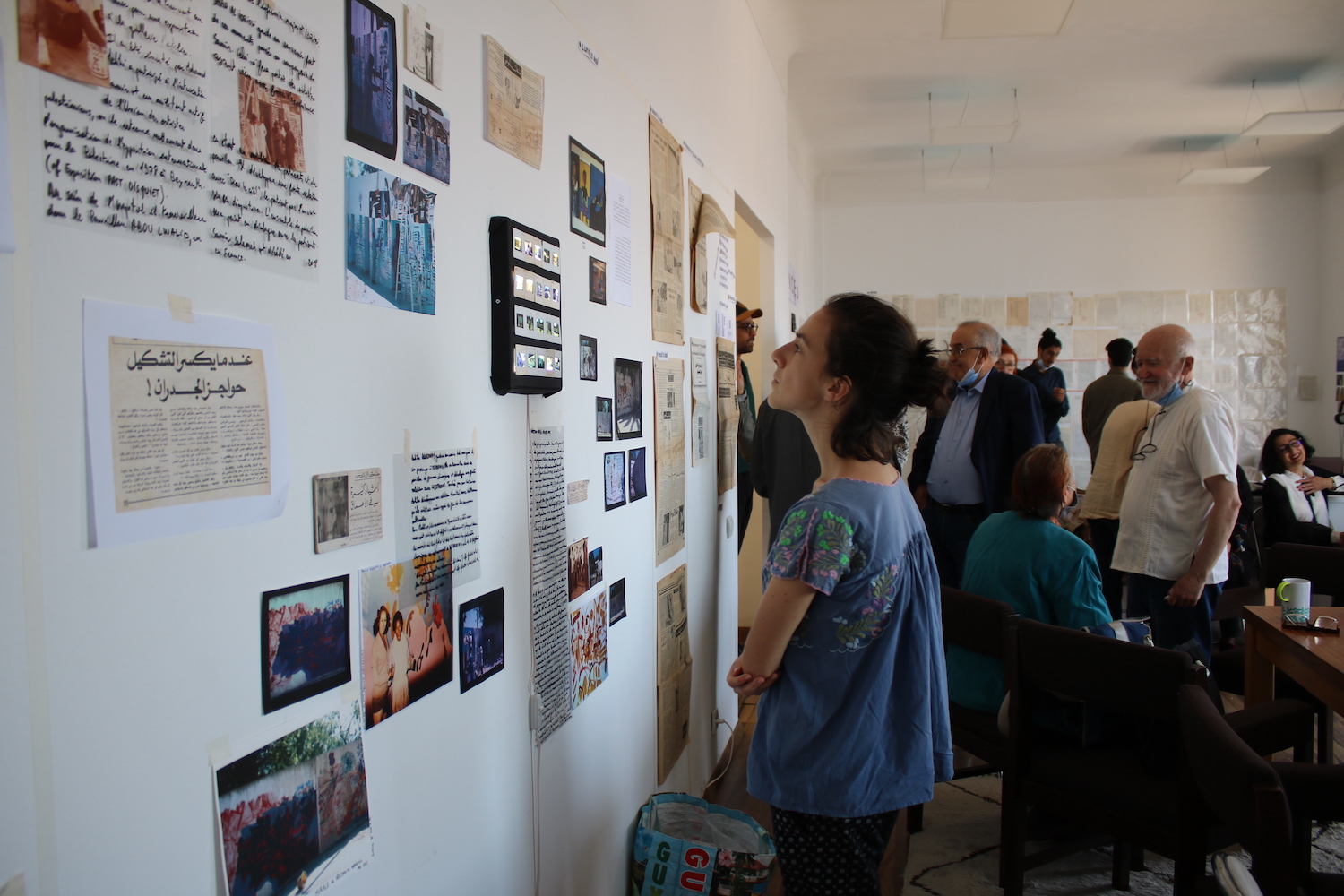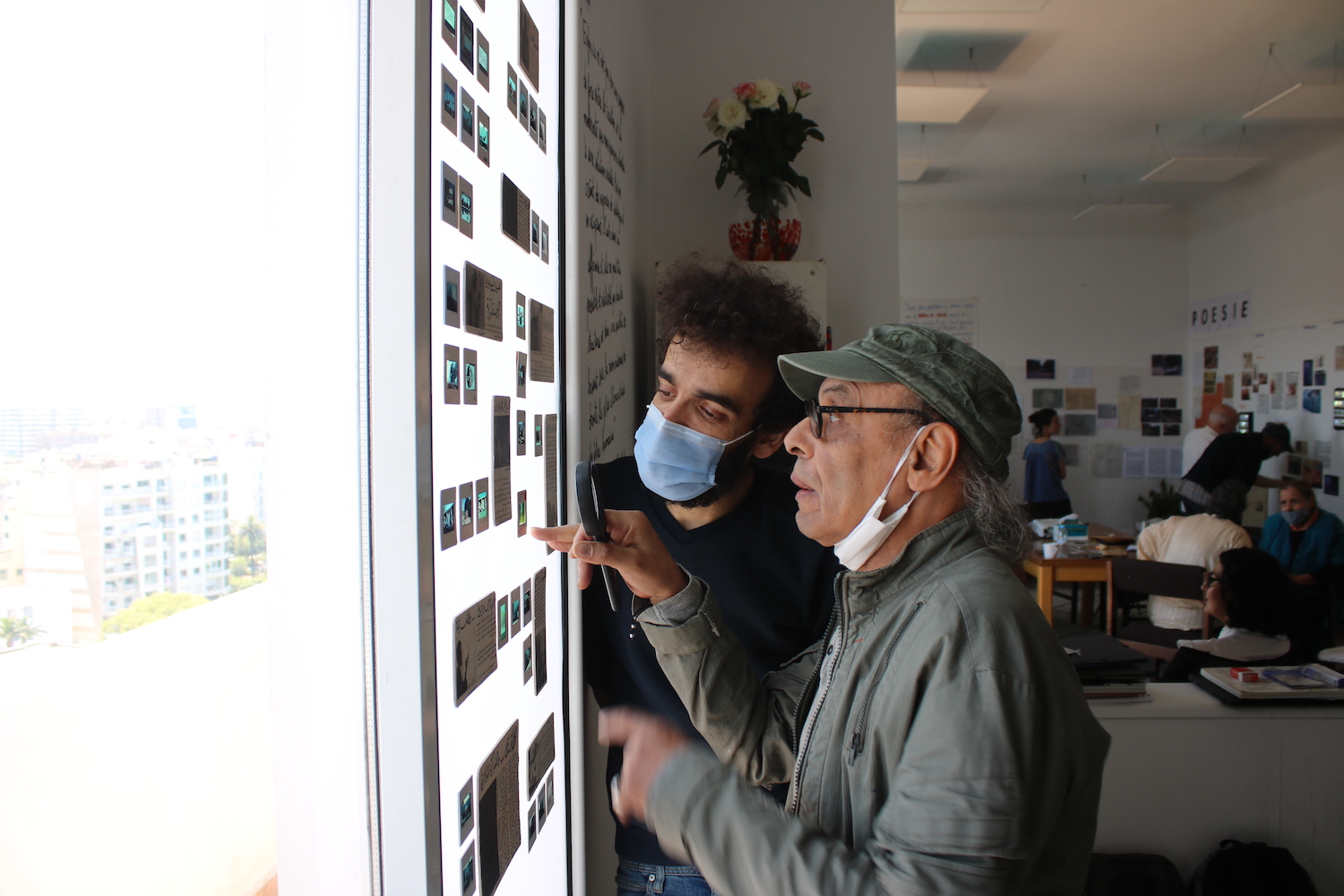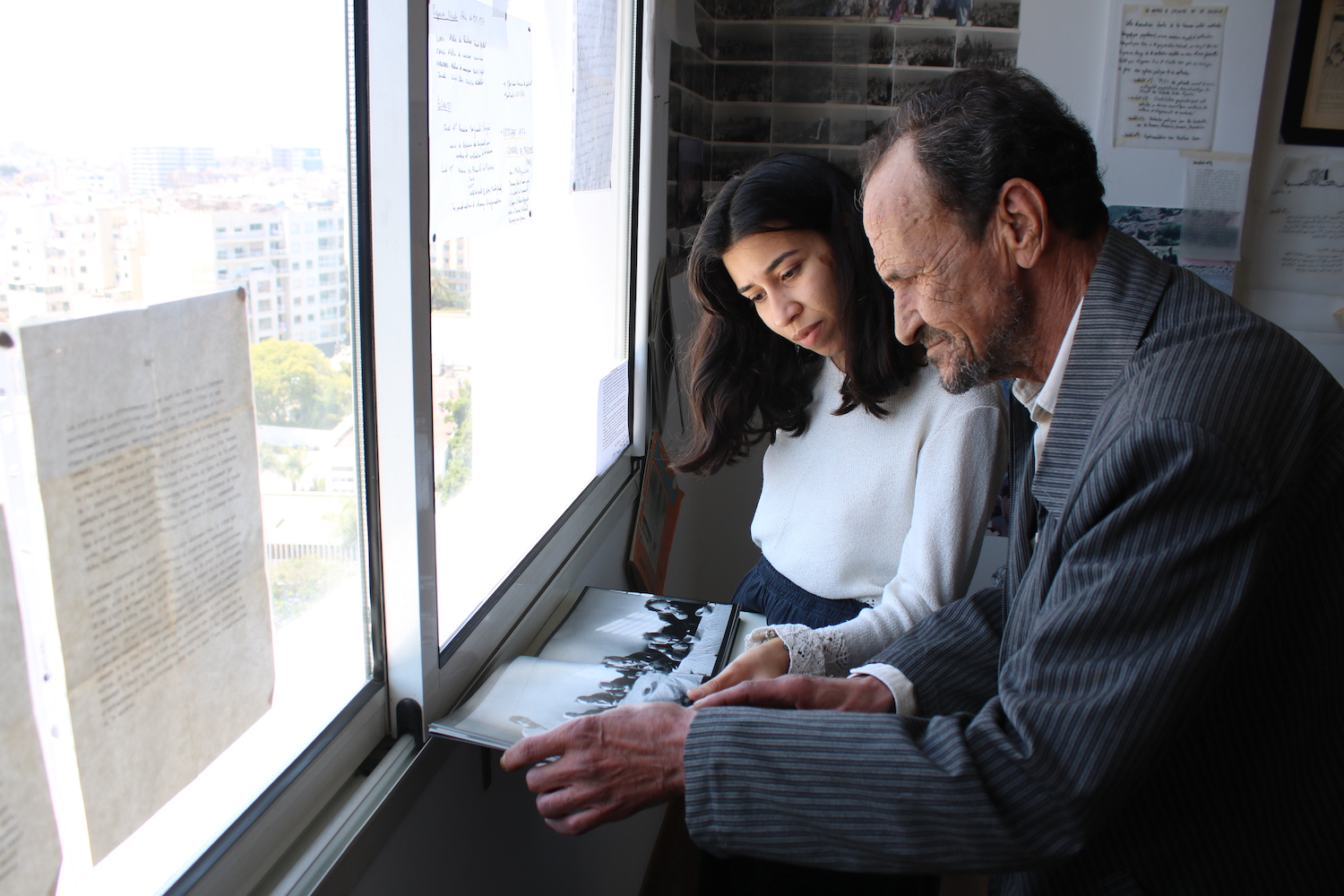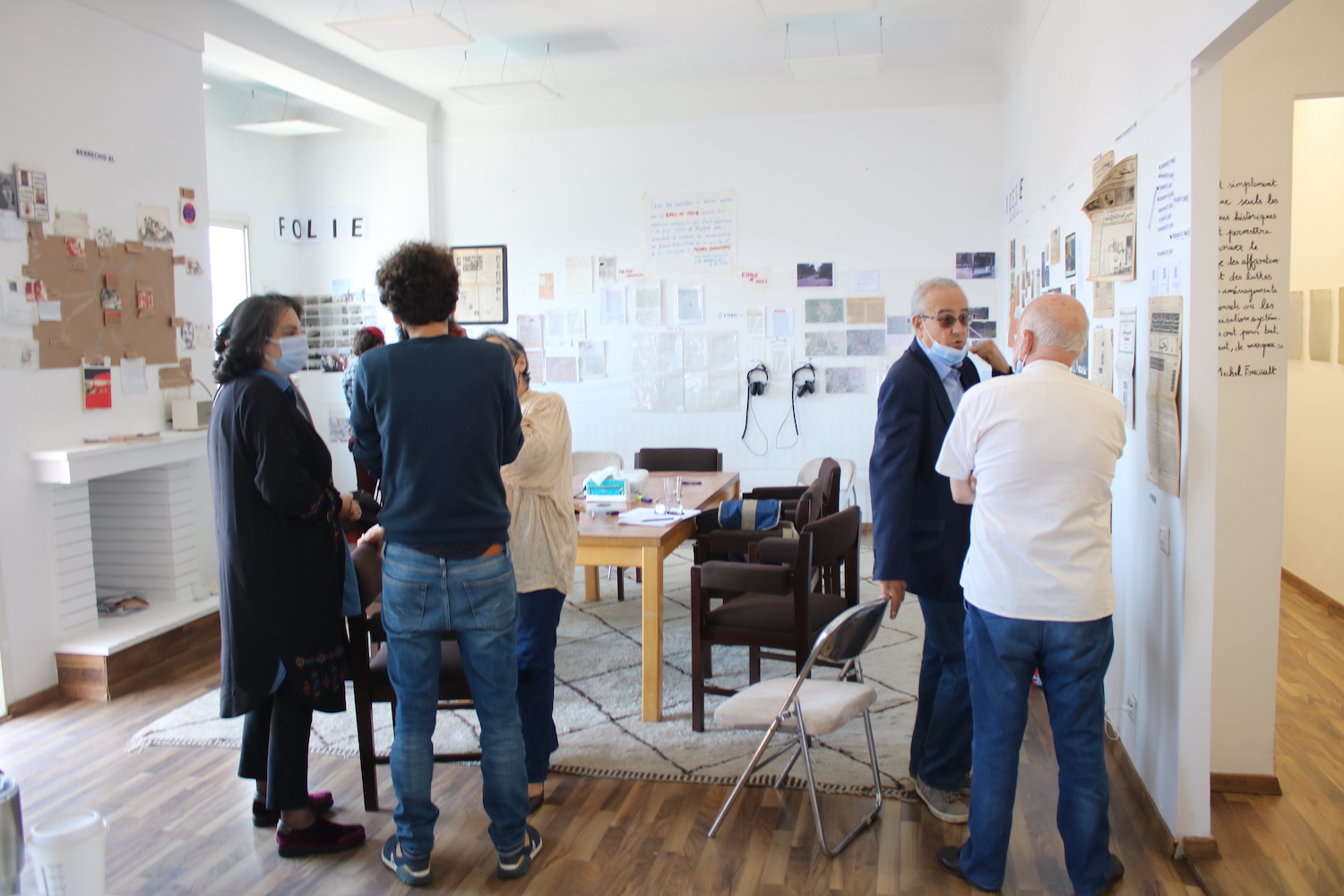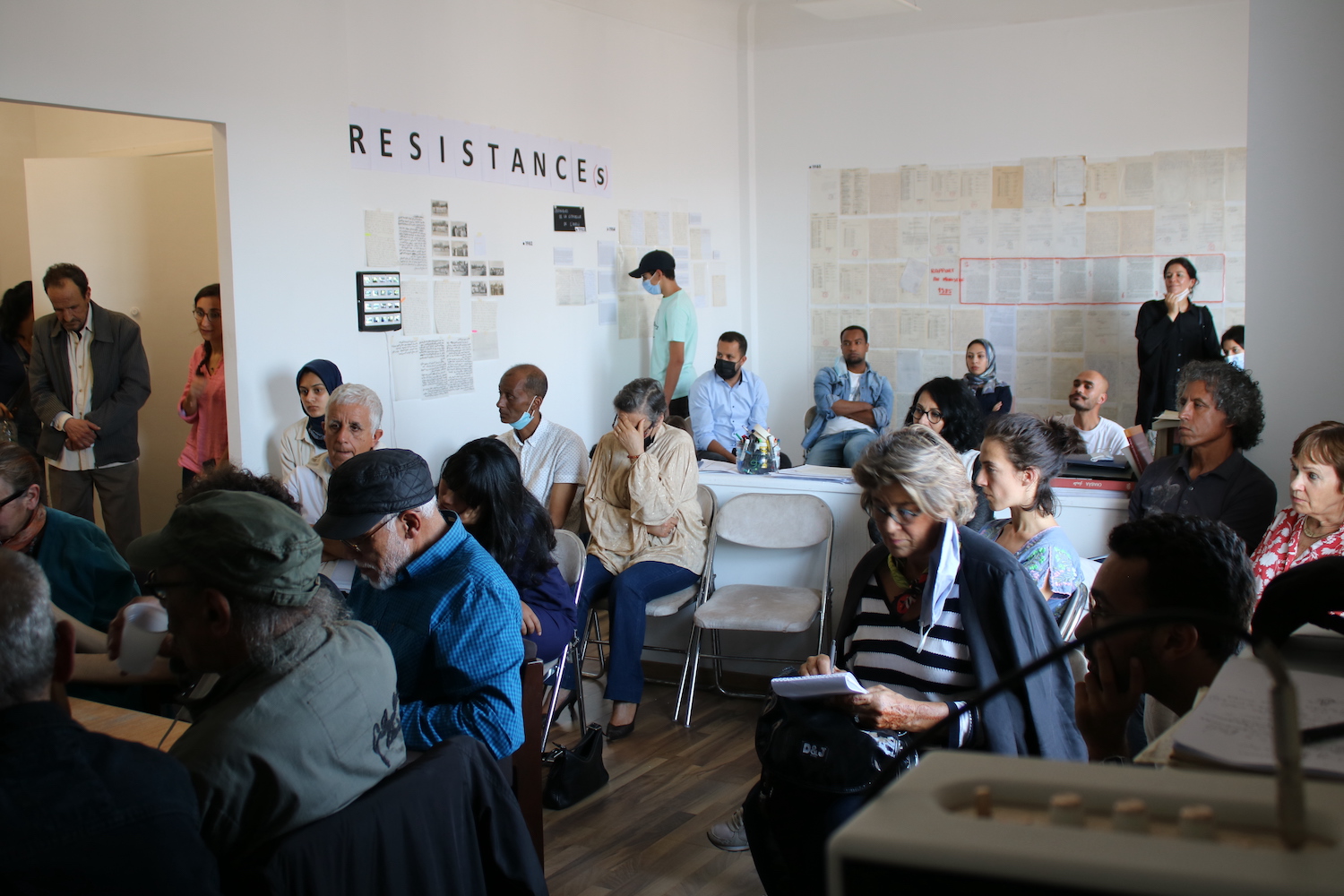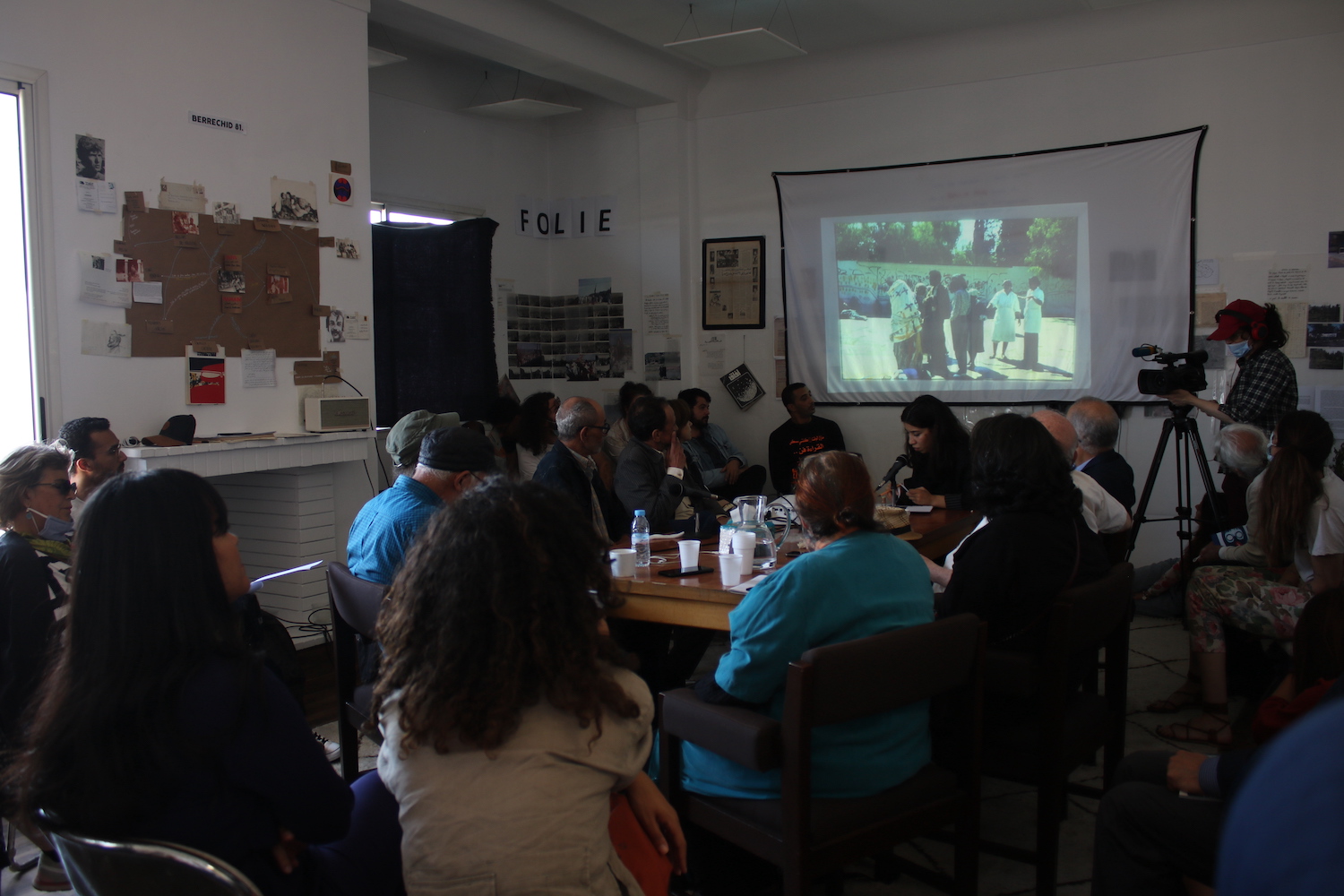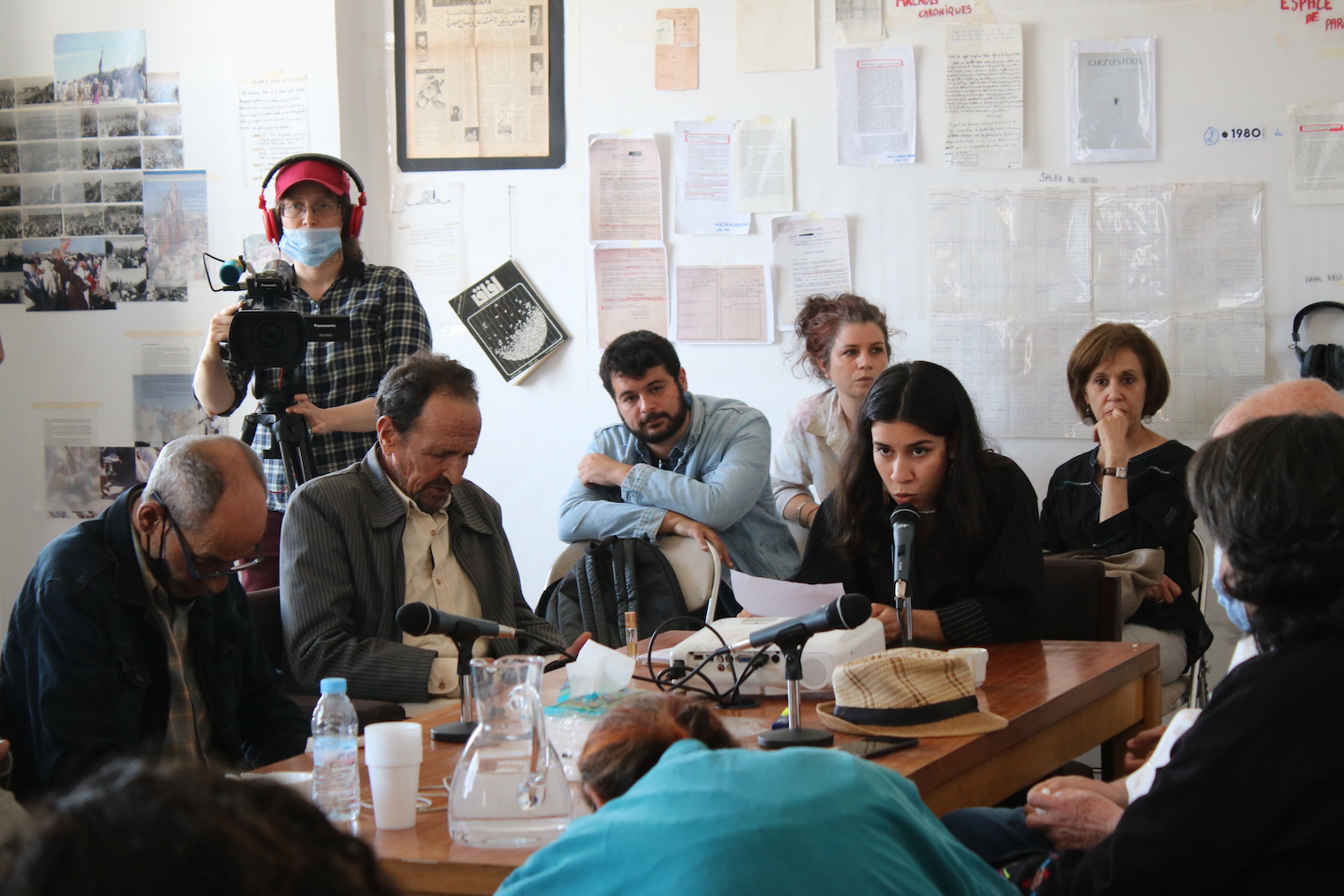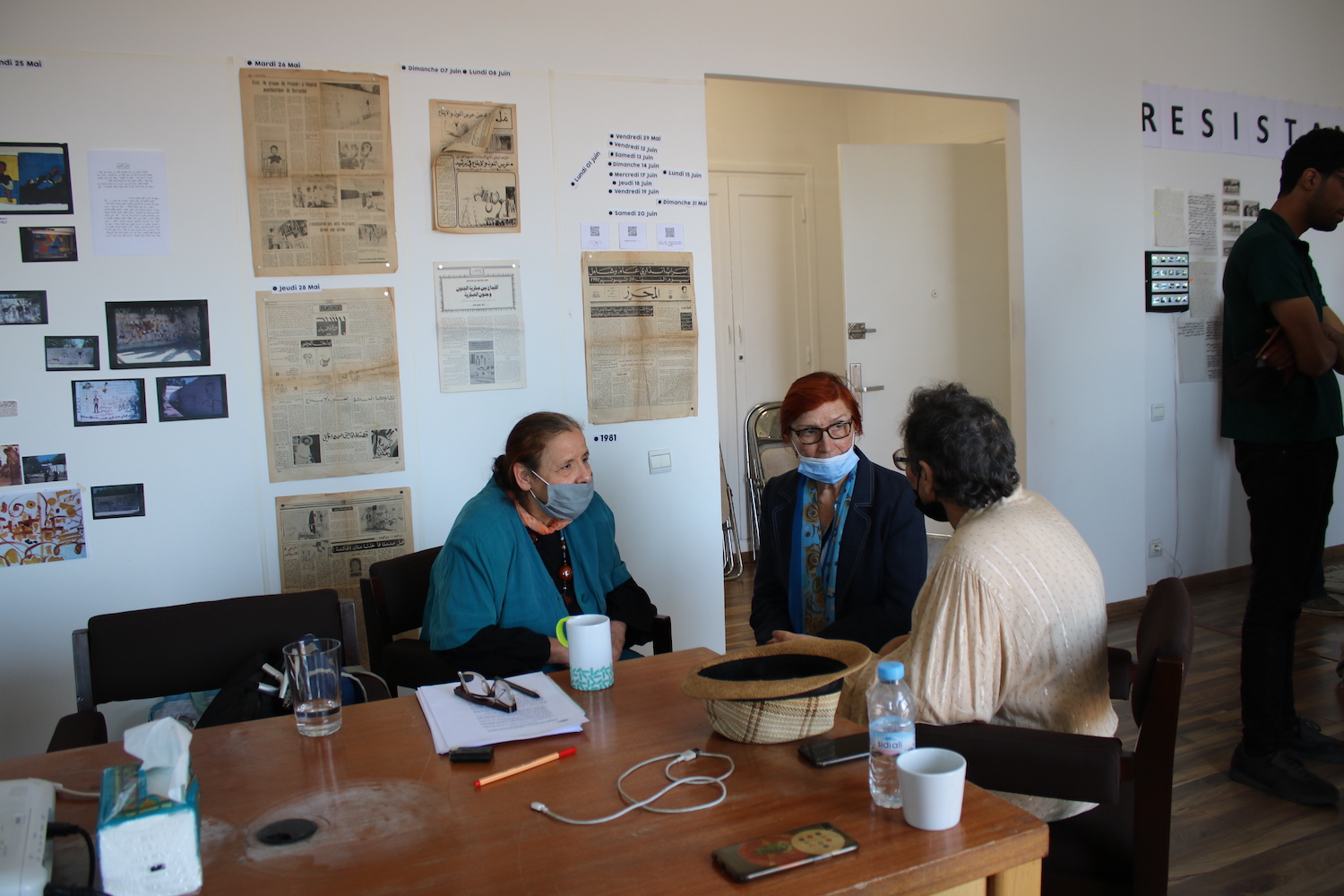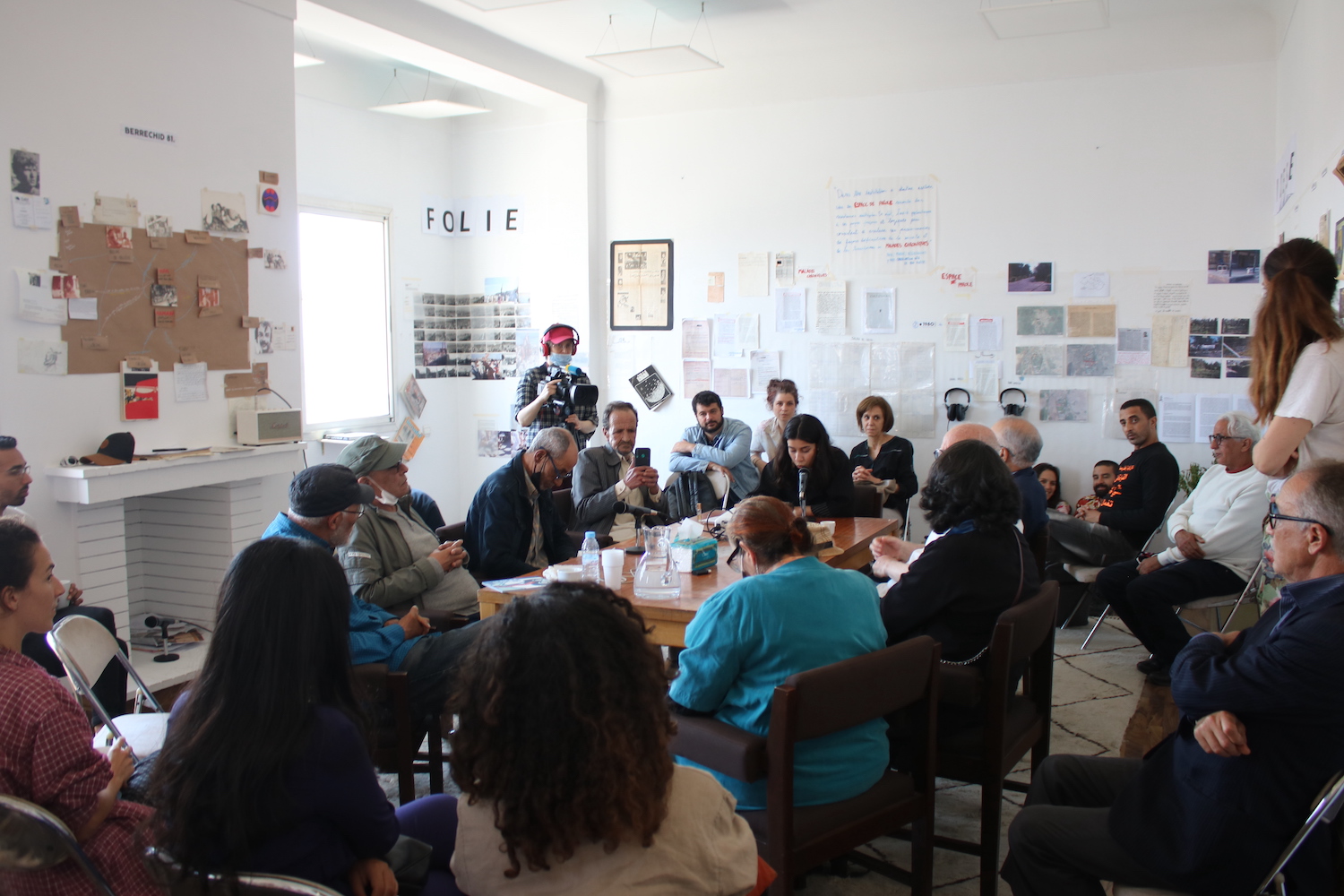Abdeslam
Ziou Ziou
Berrechid 81 :
A look back at a collective experience
at the edge of art and
psychiatry
A Public Programme by Abdeslam Ziou Ziou
31 May – 5 June 2021
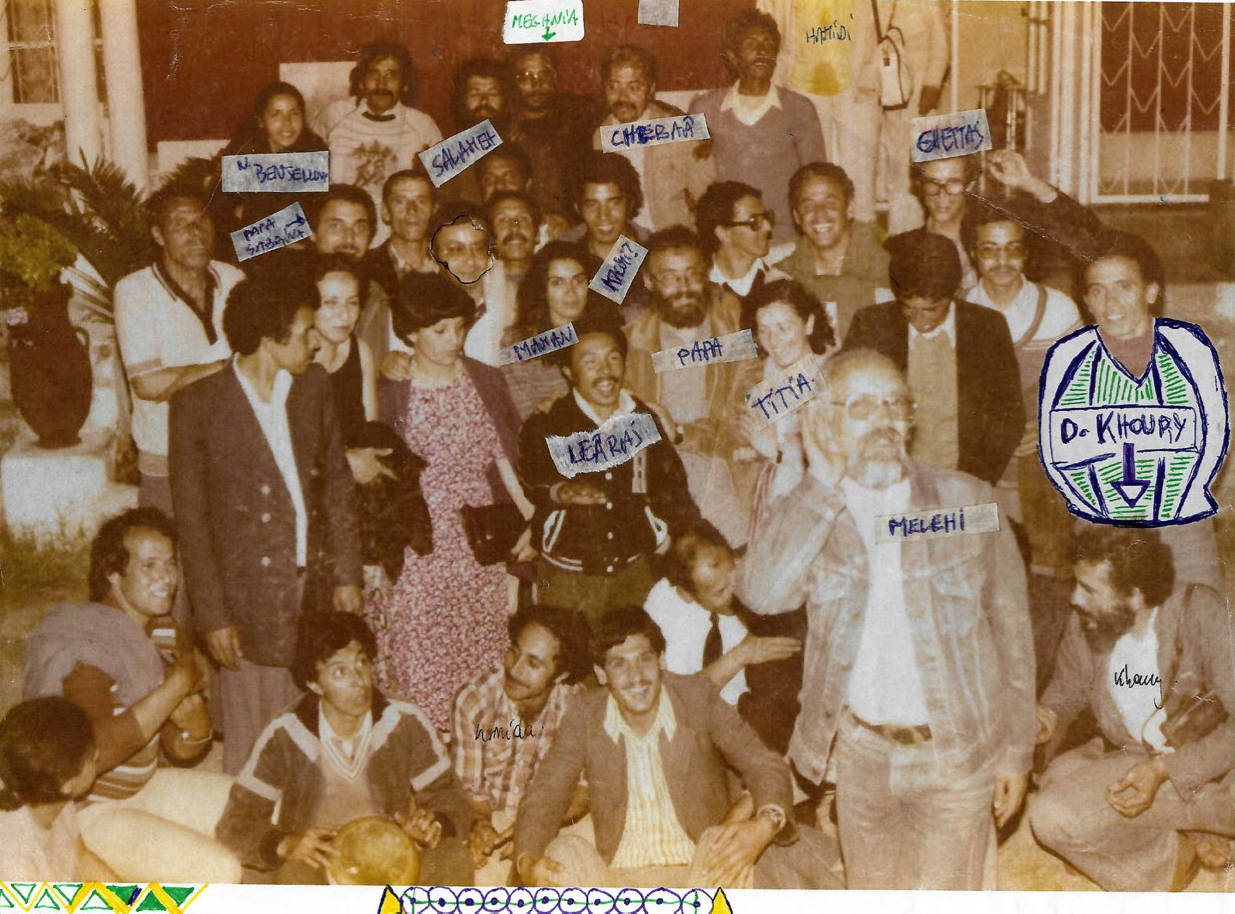 Group photography in front of Dr Ziou Ziou Abdellah’s service accommodation in Berrechid. June 1981. Archives Dr Ziou Ziou
Group photography in front of Dr Ziou Ziou Abdellah’s service accommodation in Berrechid. June 1981. Archives Dr Ziou Ziou
At the end of a 6-month research residency, Abdeslam Ziou Ziou developped a week-long programme, in June 2021, 40 years after the “Moussem” of Berrechid.
The “Moussem” brought together artists, patients, doctors, hospital staff and the public, between the 20th and the 30th of May 1981, on the initiative of his father, Doctor Abdellah Ziou Ziou.
Abdeslam Ziou Ziou originated his program organically, as his fieldwork, discussions and transcribed interviews, annotated photographs and a rich and diverse bibliography progressed. He brought forward this collective endeavor to resist normative standards and paid tribute to the individualities who formed it.
Open Studio
Berrechid 81: Installation of archives
Berrechid 81 unfolds the different steps undertaken for research by Abdeslam Ziou Ziou on a collective experience of mental health care in Morocco between 1975 and 1986, based on the archives of Dr Ziou Ziou. Berrechid 81 is divided into three parts, taking the title of an essay by Dr Ziou Ziou published in 1992: Madness – Poetry – Resistance. Each part includes sub-themes that contextualise and highlight the work carried out by Dr Ziou Ziou in the field of psychiatry in Morocco. The fieldwork has opened up a multitude of research areas ranging from the history of psychiatry in Morocco, to the intersection of art and psychiatry, while weaving an intimate ethnography of resistance to the medical and psychiatric institution.
Online Studio
Tuesday, 1 June 2021
Presentation by Abdeslam Ziou Ziou on the outcome of his six-month research residency followed by a discussion with the curators, fellows and partners of the School of Casablanca. Moderated by Salma Lahlou. The presentation in French is followed by a discussion in English.
Closed Studio
Friday, 4 June 2021 / Psychiatry
Looking at the ‘Pavilion 36’ experience in light of today’s psychiatric practices
Aziza Ziou Ziou (clinical psychologist) talks to psychiatrists Fatiha Boulayoun, Saloua Kijri, Nadia Mouchtaq and Dr. Ziou Ziou as well as psychologists and founders of the Ruban d’Espoir association, Rim Difoullous and Lydia-Hanaa Faris.
The discussion focuses on the current methods of psychiatric care, echoing experiences in different institutions in Morocco, at the Arrazi Hospital (Salé), Pavillon 36 (Casablanca) and the psychiatric hospital in Berrechid.
Saturday, 5 June 2021 / Art and Psychiatry
A (great?) time
Lunch – conversation led by Imane Zoubai (artist) with Dr Ziou Ziou, the artists who participated in the Berrechid experience, including Abdelkabir Rabi and Abdellah Harriri, and the new artistic guard. This open discussion made it possible to reconstruct this experience in all its components: the medical experience, through the participation of part of the hospital team; the artistic experience through the participation of the artists; as well as the legacy of these experiences through a dialogue with the new generation of artists who attended this event in large numbers.
Bik Van der Pol
A “dérive”, through
Casablanca, history and
minds
A Public Programme by Bik Van der Pol
Learning together: November 2021
School of Walking: November 2022
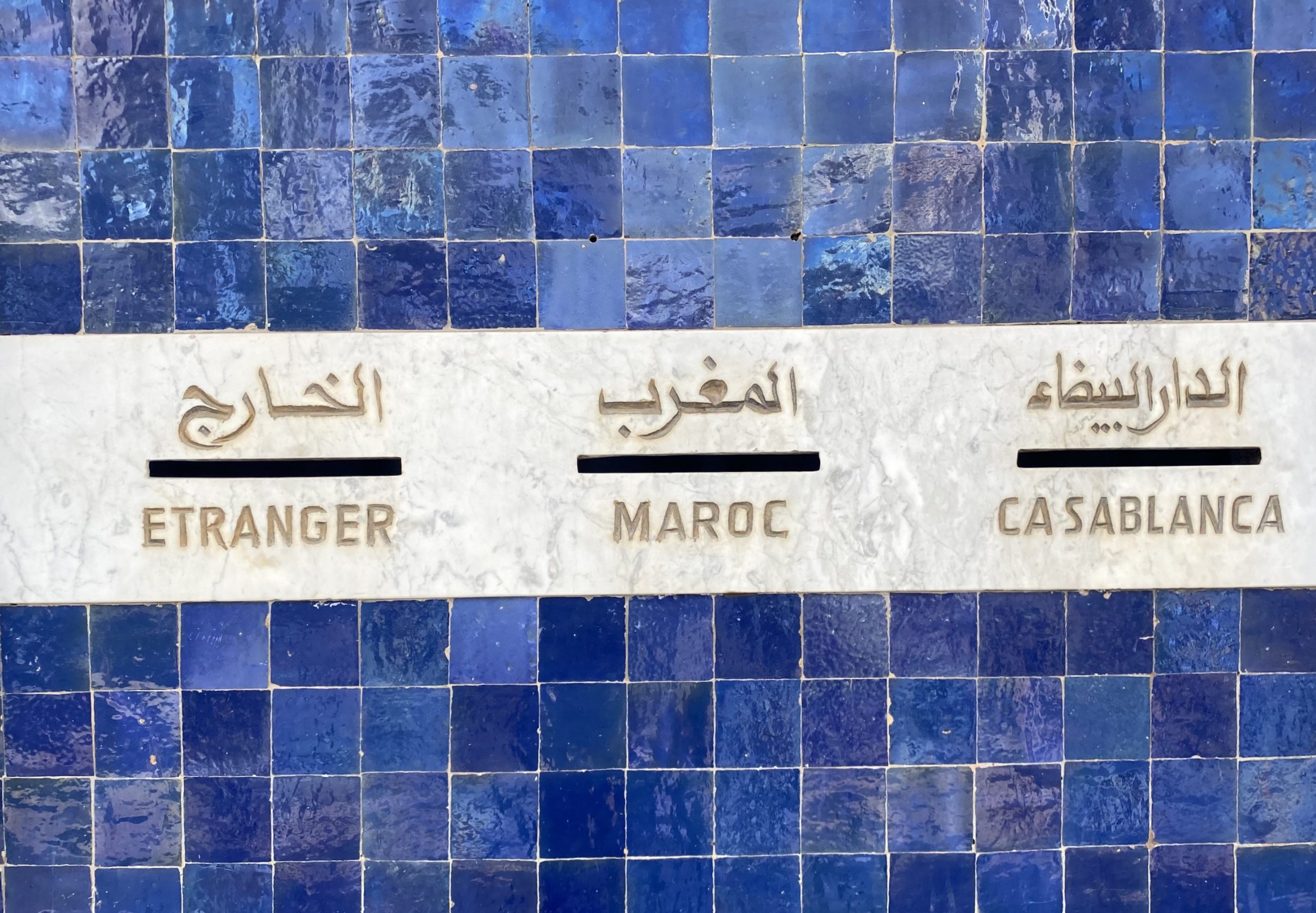 © Bik Van der Pol
© Bik Van der Pol
Learning together
In November 2021, during the first part of their research residency in Casablanca, artists Liesbeth Bik and Jos van der Pol, working together as Bik van der Pol since 1995, explored the city and encountered its architecture, silent history, ambient noise and inhabitants. Entering into a dialogue with the public space and making it and bringing awareness to its past and potentialities is the common thread of their “dérive”.
Throughout the month, meetings and discussions took place with various cultural actors, including Bert Flint, Mamma Group/Lahbib El Moumni, Mohamed Rachdi, Kenza Sefrioui, Sabrina Kamili, Florence Darsi, Maud Houssais, Fatima-Zahra Lakrissa, Maria Karim, Mohamed Jibril, Mehdi Azdem, Eric Van Hove and Said Guiha.
Artist Talk with Bik Van der Pol
Thursday, 25 November 2021
The talk, moderated by Salma Lahlou and Krist Gruijthuijsen, took place in Casablanca at ThinkArt with a zoom live streaming. The talk was in English and started with a presentation by Bik Van der Pol on their practice and ongoing research for the School of Casablanca, followed by a discussion with the moderators and a Q/A session with the public.
Download the November 2021 programme
School of Walking
For the second part of their public programme in November 2022, Bik Van der Pol proposed a series of walks to think collectively and contribute to the curriculum of the School of Casablanca. Bik Van der Pol think of walking as an act of resistance, while simultaneously asking how, and where one goes.
The walks were developed in collaboration with Manal Aziz and Hamza Boussedra, Maria Daïf, Hassan Darsi, Mohamed Fariji and Fatima Mazmouz.
Hassan Darsi: On 11 November 2022, Hassan Darsi led a walk from the city to Parc l’Hermitage and back. The route, taken by the artist hundreds of times over the years, either individually or as part of a group, serves to restore the link between the city, its inhabitants and the park. Built under the French Protectorate and abandoned for years, this park was rehabilitated from 1999–2006 by citizens, artists and politicians who united to change the nature of things. Here, on a small scale, numerous aspects concerning the future of a whole society come into play. This walk was the first time Darsi returned to the park since 2006.
Maria Daif: On 15 November 2022, Maria Daif guided a walk along the promenade of the Ain Diab beach to café du Crépuscule, from the cathedral of the commercial, the shopping mall, to the religious cathedral, the Hassan II Mosque. The seaside promenade is important in the life of the Casablanca inhabitants. From the Mausoleum Sidi Abderrahmane—a unique piece of tangible and intangible heritage, once home to a mystique healer—to the café du Crépuscule, passing the derelict colonial swimming pools, football players and families, nightclubs and restaurants, the walk allowed one to discover the constantly changing city and society.
Fatima Mazmouz: Fatima Mazmouz was invited to activate her series of 30 portraits of Moroccan resistance fighters of the twentieth century, titled Casablanca Mon Amour – Resistants (2014–2018), with a live walk through the city of Casablanca. The portraits were inspired by Casablanca’s boulevards—named after freedom fighters—in search of a memory that has been erased. No memory, no image, no narrative about these resistance fighters exists as collective knowledge. By excavating their history, the history of the resistance was discovered. During her research, Mazmouz found that information was scarce and difficult to find. Her walk on 19 November re-activated and brought to life these histories through a series of performative rituals.
Manal Aziz and Hamza Boussedra: A collaboration between Casablanca native Hamza Boussedra and a guest of the city, Manal Aziz, this walk challenged how we engage with and explore a city. The walk was silent, and was based on the 5 Senses Exercise, a practice rooted in mindfulness, which aims to create a heightened sense of awareness of our inner and outer experiences. The walk on 21 November passed several landmarks and spots in the inner city, starting at the Hassan II Mosque and ending at ThinkArt, where the participants gathered to exchange their experiences and observations through a reflective workshop.
Mohamed Fariji: At the end of the 1980s, the only aquarium in Morocco shut down, nearly 25 years after its opening. Rejecting a socio-historical approach in favour of the imaginary, Mohamed Fariji developed the ‘Imaginary Aquarium’ exhibition, looking for possible stories and answers. This is the beginning of a reflection on the reactivation of abandoned places in Casablanca, leading to the proposal of the Collective Museum of the memory of the city’s neighbourhoods and its periphery. The premise is simple: How can a city of more than six million inhabitants be considered without a museum of its history? What is a city without a museum? Is it a city without history? Seeking answers to these questions, the walk took place on 24 November.
Céline Condorelli
Integration
A Public Programme by Céline Condorelli
Artist Talk: May 2022
Lecture Series: November 2022
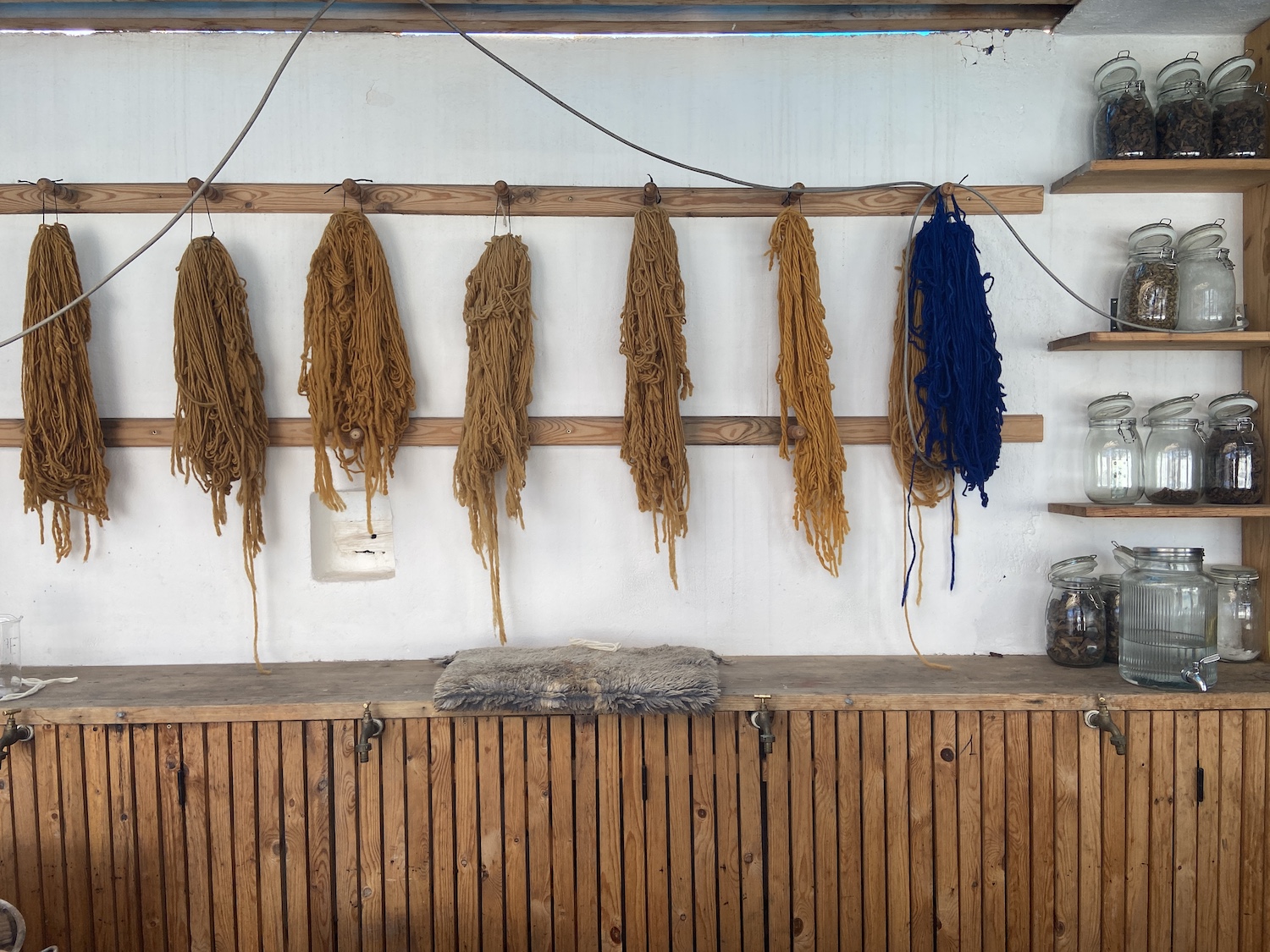 © Céline Condorelli
© Céline Condorelli
In keeping with the principles that underpin her practice and well developed methodologies, Céline Condorelli used her residency at ThinkArt to expand upon her research on the notion of labour. This idea is of central importance to the artist, who makes the concept of work visible in the exhibition space, by looking beyond traditional hierarchies. Condorelli uses strategies that challenge discriminations linked to the status of workers, objects and audiences, and employs the exhibition space as a social space. Here, art is understood as an activity, a tool and an object; it becomes one element among others. For School of Casablanca, the artist explored rural carpets from the High Atlas Mountain region to restore their position to that of a sophisticated practice of abstraction carried out by women.
Artist Talk with Céline Condorelli
Wednesday, 25 May 2022
Moderated by Salma Lahlou, the artist talk with Céline Condorelli took place at L’École supérieure des beaux-arts de Casablanca. The talk was in French and started with a presentation by the artist on her practice and ongoing research for School of Casablanca, followed by a discussion with the moderator and a Q&A session with the public.
Download the May 2022 programme
Lecture Series
For the second part of her public programme, Céline Condorelli conducted a series of readings of carpets from the Atlas Mountains region made by anonymous women. On 23 November 2022, she invited four experts who specialise in cultural history -Ali Amahan, Rabii Alouani Bibi, Nadia Sabri and Samba Soumbounou- to make these weavings speak. Her goal was threefold: to consider them as artworks in their own right; to look at abstraction as space and choose to read it as a plan; and to anchor an understanding of abstraction as an ancestral practice of experimentation, mostly undertaken by women, largely forgotten and erased by (art) history.
Manuel Raeder
From the shape of a letter, to the word, to the sentence, to the page, to the city
A Public Programme by Manuel Raeder
Artist Talk and Screening/Live performance: June 2022
Workshop and Walk Series: October 2022
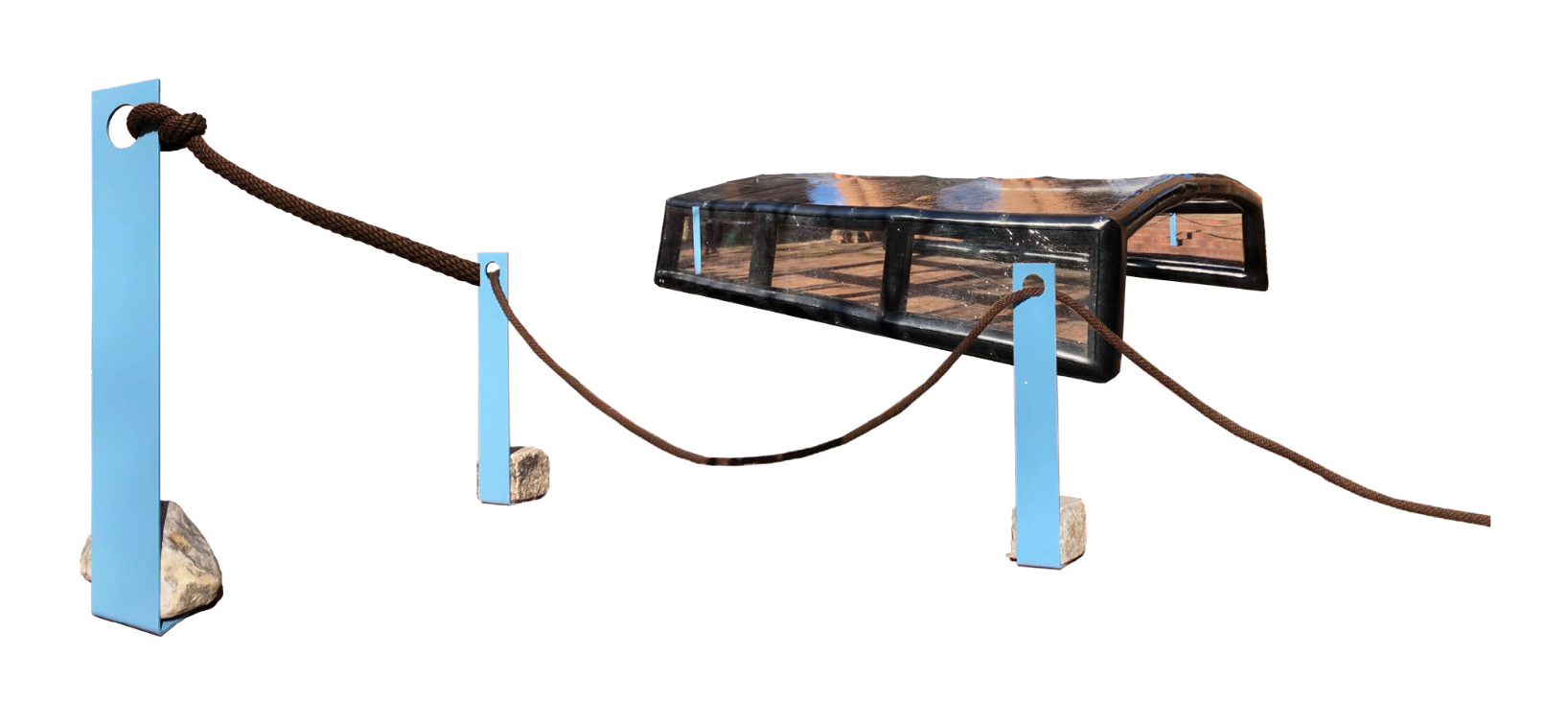 © Studio Manuel Raeder
© Studio Manuel Raeder
Manuel Raeder is a multidisciplinary designer known for painting murals in the 1990s. His practice is strongly defined by the idea that art and design should be accessible and available in public spaces. How are these public spaces taken over by the inhabitants to respond to their needs? How are the sites adapted for purposes not initially intended? Who are the individuals who appropriate these spaces?
The first part of his research residency revealed a need to set up encounters with other artists without a predefined agenda, other than the desire to forge connections around each other’s creative practices. The idea to have discussions over meals came out of this as well as encounters which encompassed the element of generosity.
Artist Talk with Manuel Raeder
Wednesday, 22 June 2022
A presentation by the multidisciplinary designer on his practice and ongoing research for the School of Casablanca was followed by a Q&A session with the public. The presentation and the discussion were in English.
Screening and Live Performance
Tuesday 28 June 2022
Untitled life experience (2021/2022)
Director: Trick54 Grocco
17 minutes
Performance: Anwar Tawae
Sound: Abdellah Archidi
As it was important to make available a space for the dissemination of artistic works while maintaining the quality of certain propositions, a screening was held—the experimental short film Untitled life experience (2012/2022) by Trick 54 Grocco and live sound performances by Abdellah Archidi.
Considering the question of audience engagement, Raeder, who is a skater, explored the Casablanca community first and foremost through skating. The artist went out to meet and interact with people in their environment, enabling School of Casablanca to identify and welcome new audiences.
Download the June 2022 programme
Workshop and Walk Series
For the second part of his public programme, Manuel Raeder focused on the function of public spaces in the dissemination of artistic practices such as street art and music. He invited Trick54 and Badreddine Haoutar, alias Retro Casseta to contribute to his research.
Trick54, also known as Grocco is one of the most present graffiti/street artists in Casablanca. Graffiti artists usually operate within abandoned territories and buildings. These sites, used by the homeless, cats and pigeons, may become the centre of gentrification and speculation, as recent history has shown us. On 20 October 2022, Grocco, who has been exploring the city for many years, walked the participants through the city over the course of a day, taking different routes and telling stories of Casablanca that are not related to modernist architecture or well-known monuments. Instead, they explored the peripheral zones and areas of Casablanca that very few people want to see, offering a privileged access to a history of Casablanca that is often marginalised, forgotten or erased.
For his Tape Looping workshop Retro Casseta created with the students of L’École Supérieure des beaux-arts de Casablanca an alternative timeline, a playful diagram of the different musical styles and key players of the Moroccan and North African cassette scene, with the aim of pinpointing their musical influences and imagining their transformation. The students made new cassettes, stitching together tape loops and creating unconventional sounds. The result was a visual representation of the North African cassette music scene and new mixtapes with their covers that Raeder helped design.
Fatima Zahra Lakrissa
Maghreb Art: A Patrimonial Counter Model?
A Public Programme by Fatima-Zahra Lakrissa
Presentation of the research methodology to the curators and residents of School of Casablanca: April 2022
Workshop and Study Day: November 2022
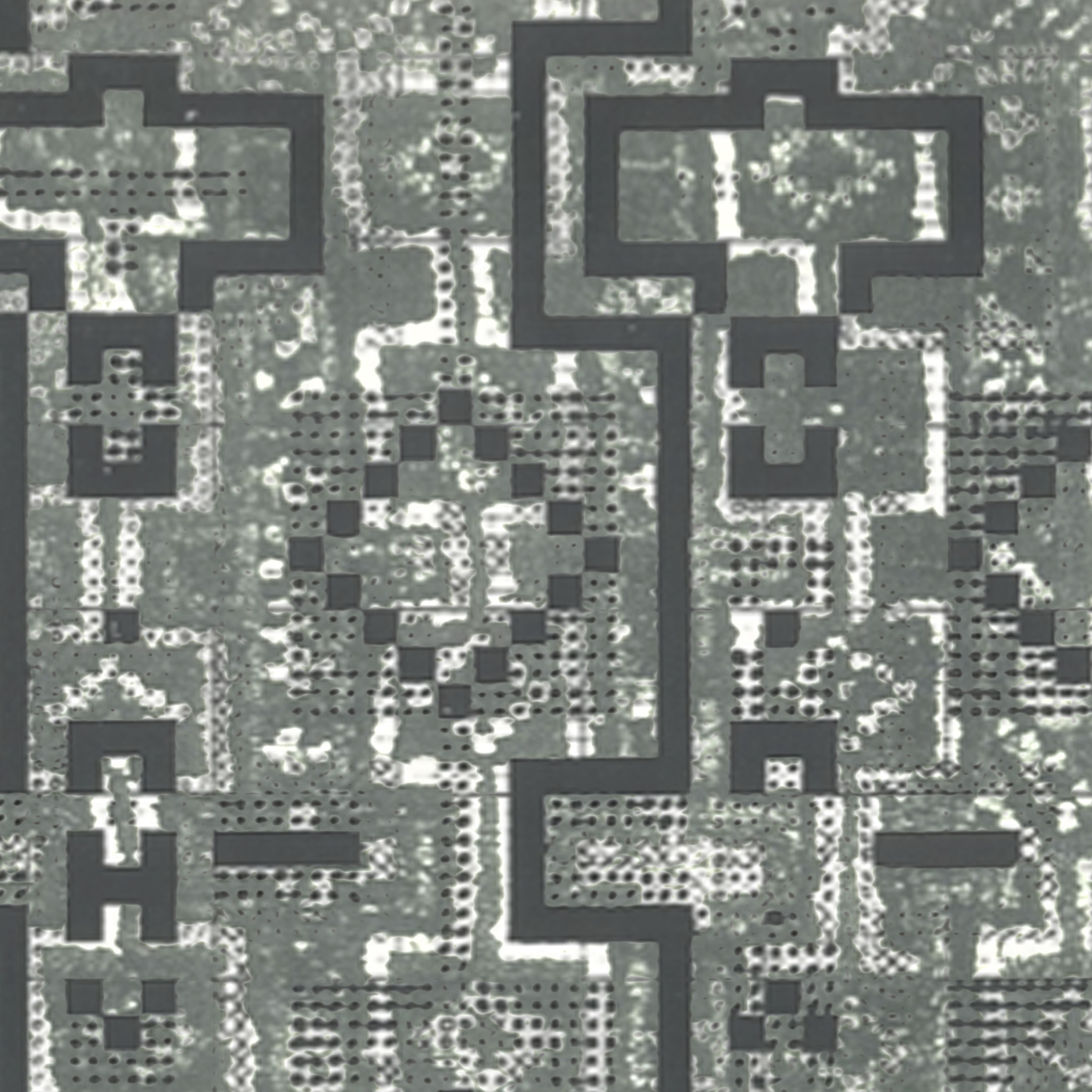 © Fatima-Zahra Lakrissa
© Fatima-Zahra Lakrissa
Fatima-Zahra Lakrissa proposed to interrogate Maghreb Art -a cultural magazine consisting of only three issues published in 1965, 1966 and 1969, jointly directed by the Dutch anthropologist and collector Bert Flint and the Casablanca Art School- through a plurality of voices and practices embodied by the magazine’s main theorists and artists with a view to understanding the magazine’s role in the structuring of a new field of knowledge between artistic and pedagogical experimentation, anthropology, material culture and art history, and to question, among other things, its critical legacy. She invited Gilles Aubry and Laura U.Marks to contribute to her research.
Workshop and Study Day
On November 5 and 6, Aubry led a workshop with students from L’École Supérieure des beaux-arts de Casablanca. Participants were invited to engage with the contents of Maghreb Art to produce short sound pieces, to conceive a sort of radio version of the magazine, or the soundtrack of an imaginary film.
On November 10, Lakrissa conducted a study day featuring interventions by Aubry and Marks, as well as the presentation of the results of Aubry’s sound workshop with students from L’École Supérieure des beaux-arts de Casablanca, followed by a conversation with the public.
Peter Spillmann
Corresponding with:
Towards a documentation centre for self-organised artistic, activist and feminist initiatives
A Public Programme by Peter Spillmann
Collective research workshops and public meetings: December 2022
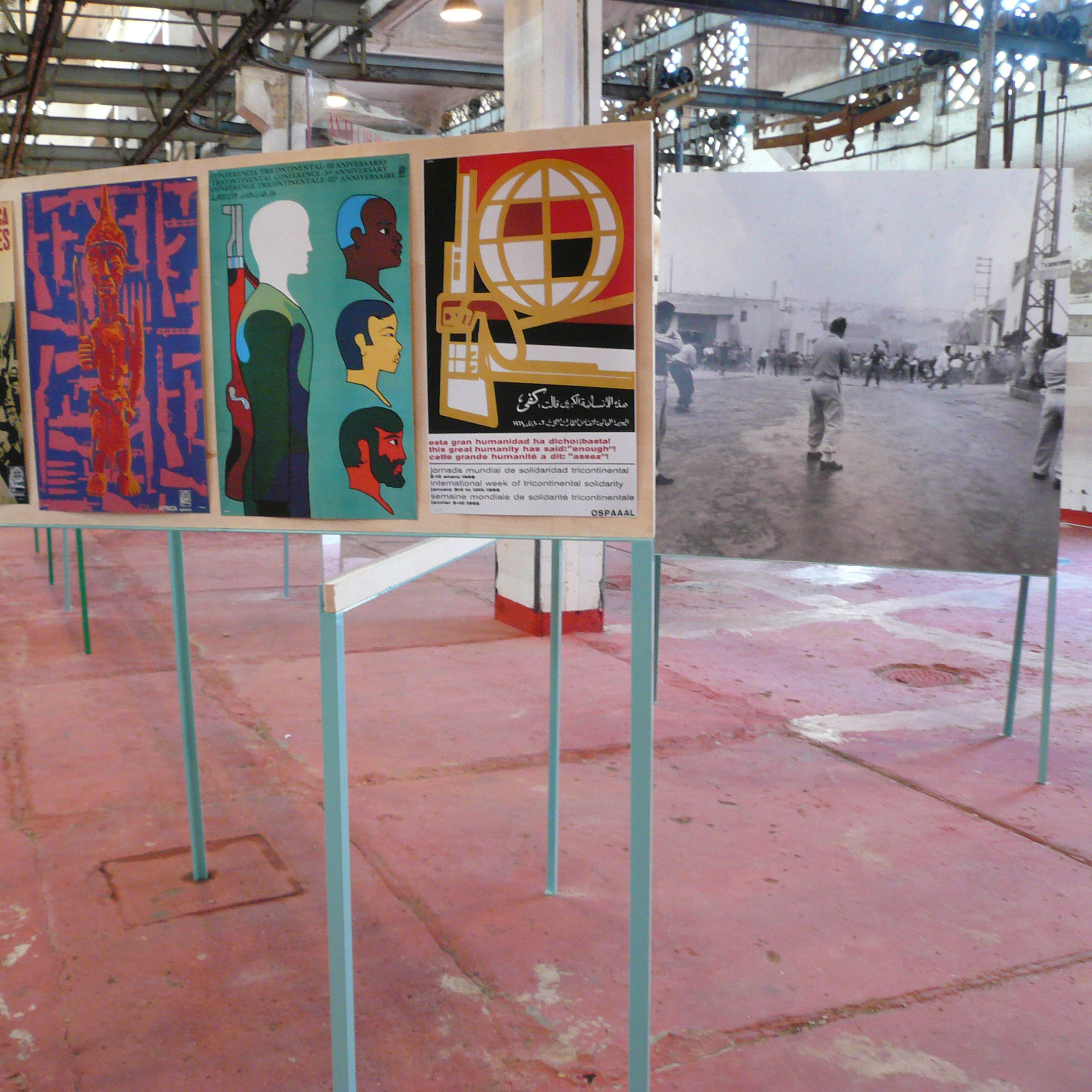 © Peter Spillmann
© Peter Spillmann
A mapping of the self-organised, activist and feminist artistic initiatives in Morocco that have been formed and active since independence in 1956 was developed together with a group of experts. Themes and discourses derived from the historical experiment of the Casa School between 1962 and 1974, such as the development of new art forms, art in public space and its mediation, a new pedagogy, the decolonisation of art history as well as emancipation and self-organisation, formed the conceptual orientation linesP
Peter Spillmann invited Amina Belghiti to organise a three-month independent and autonomous research residency with Salma Lahlou and Alia Lahlou. Further formats and working methods for a future archive will be developed, tested and explored together with invited artists during this residency.
